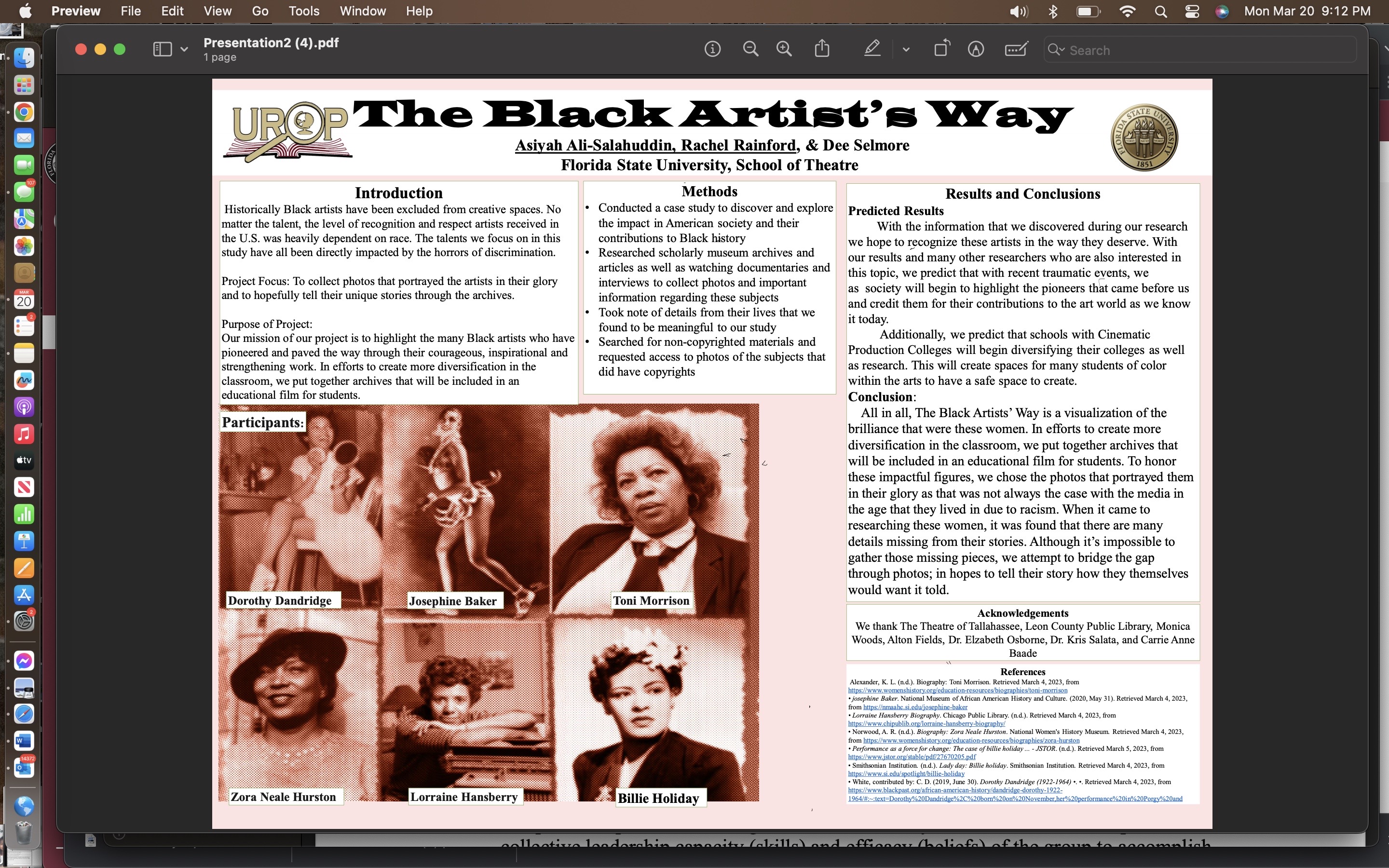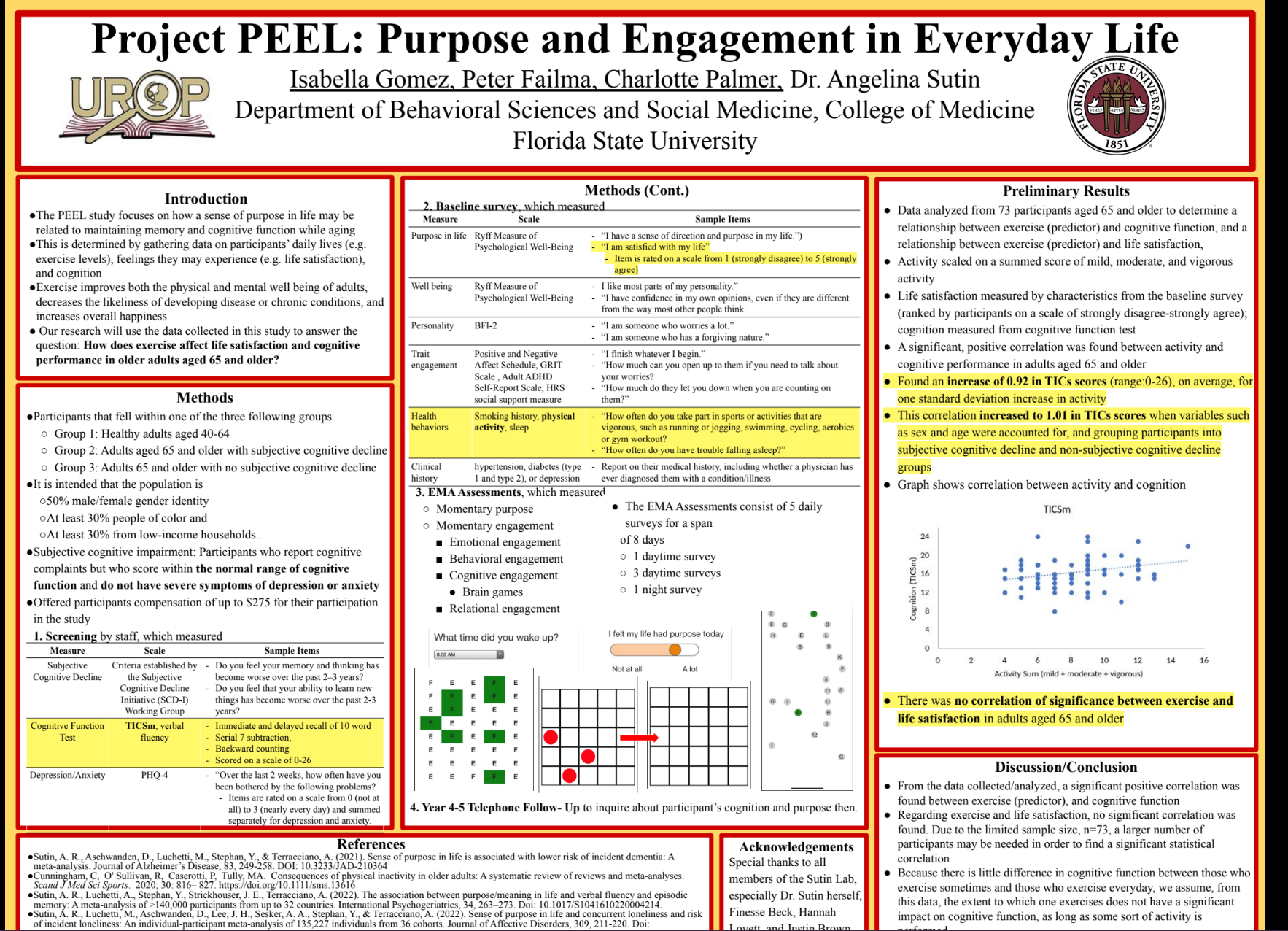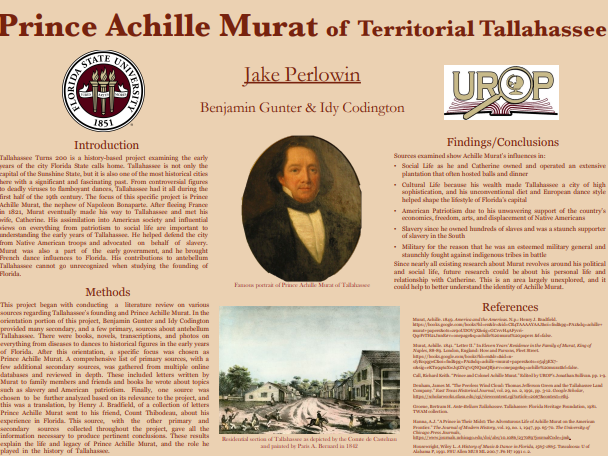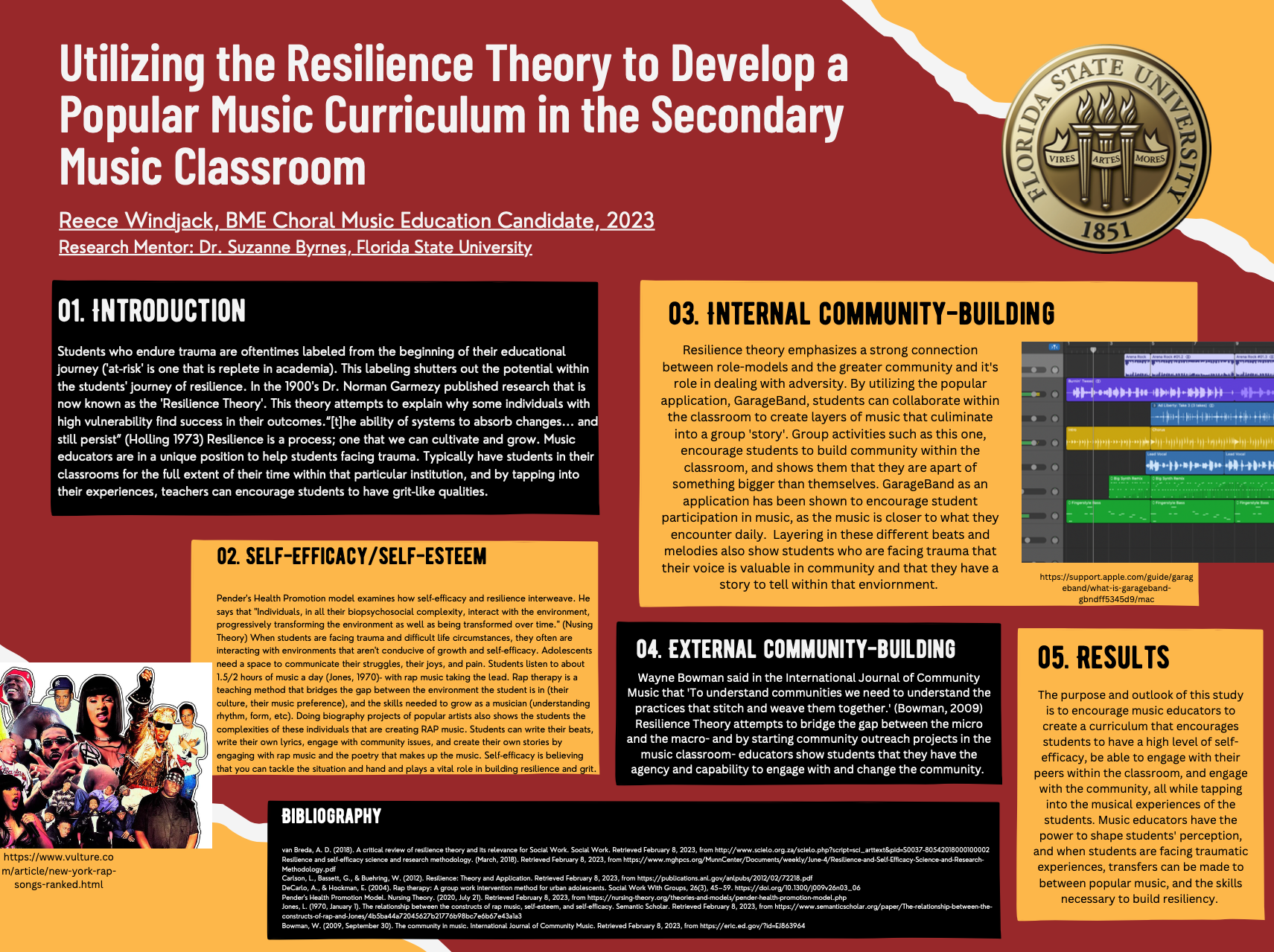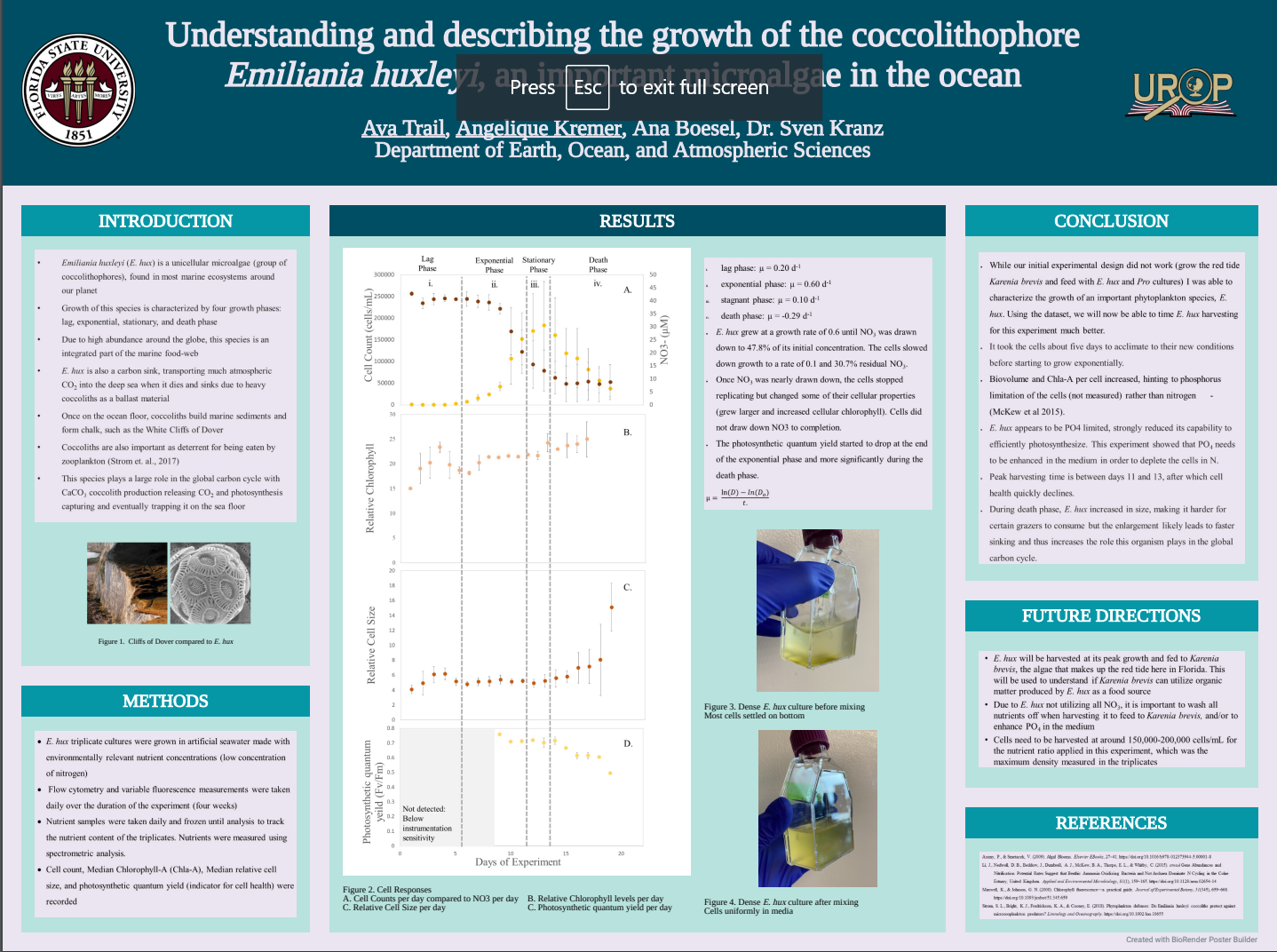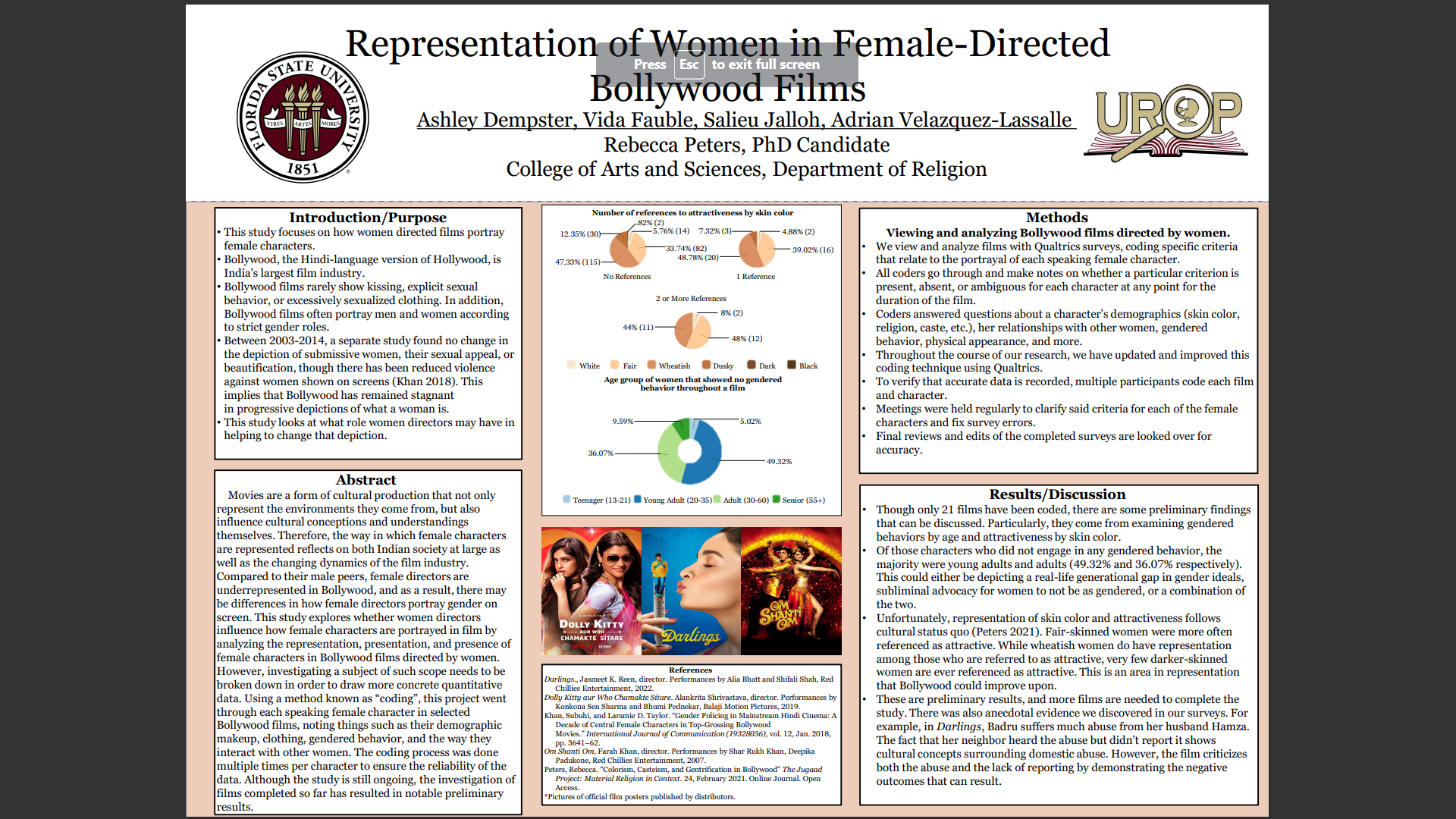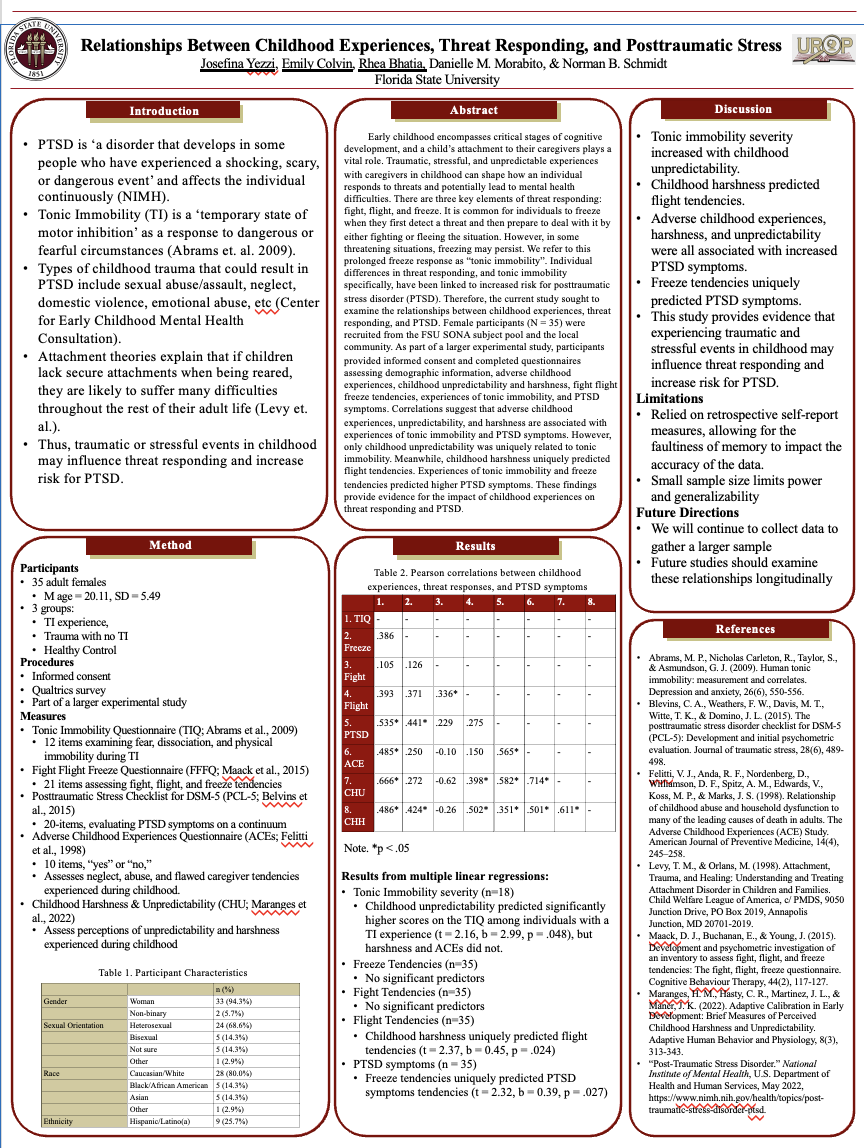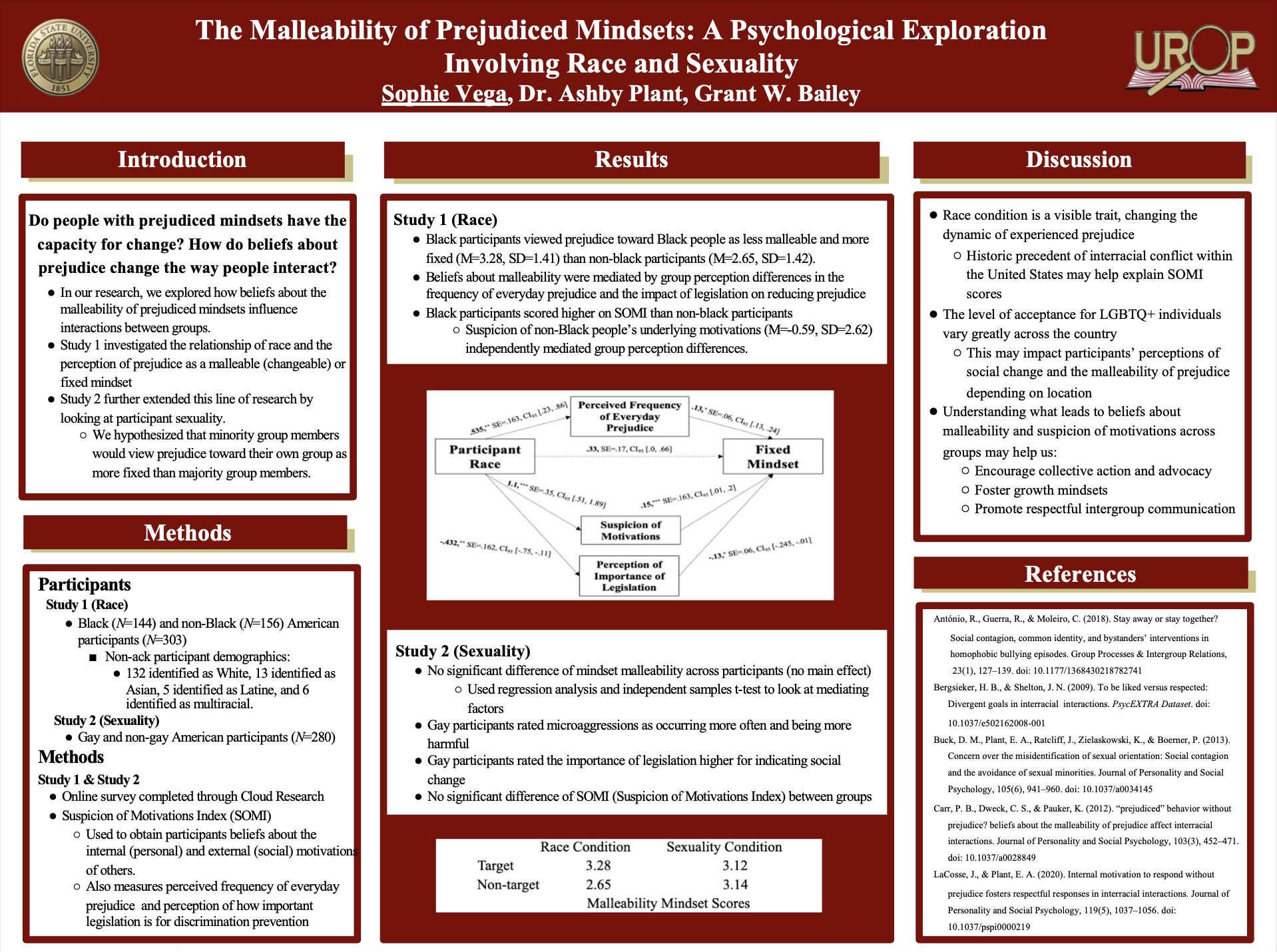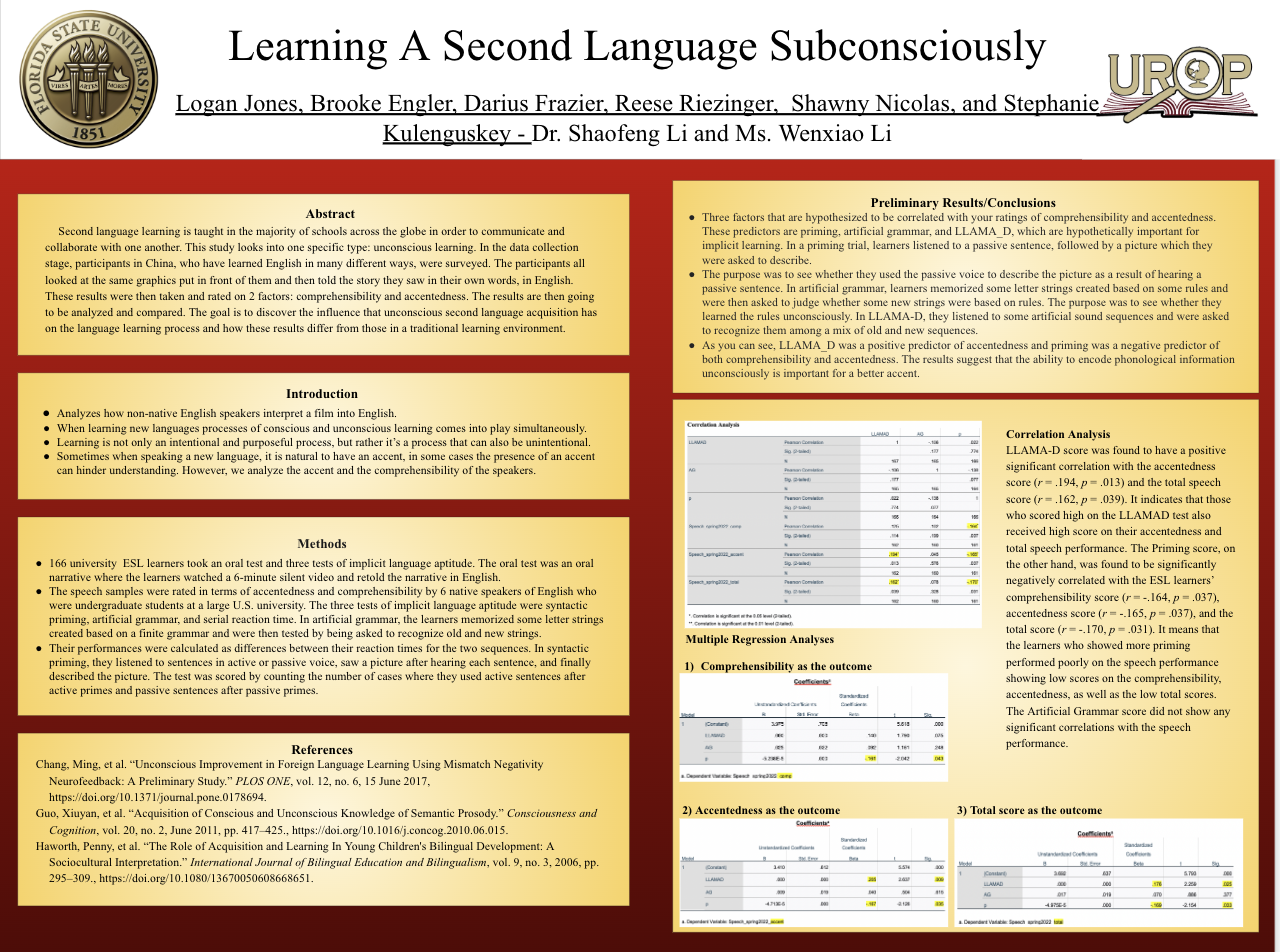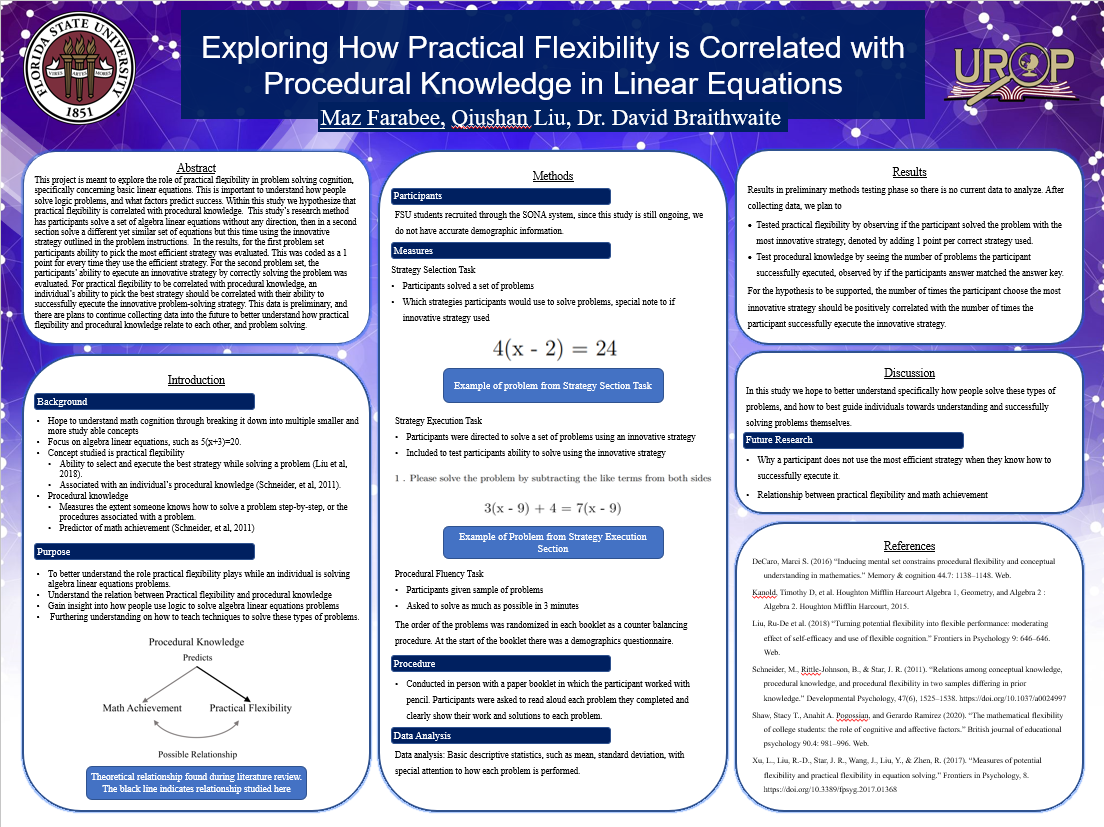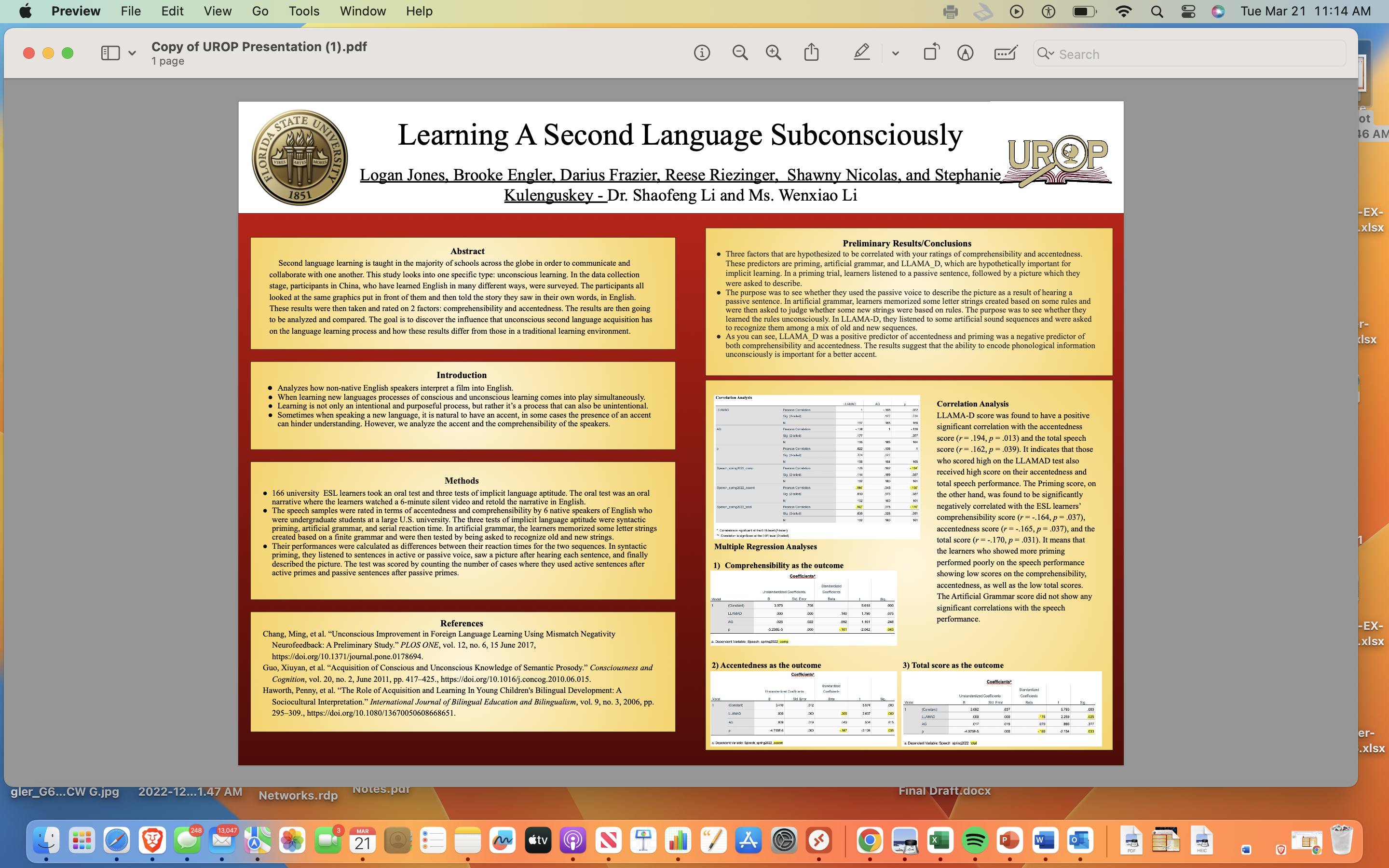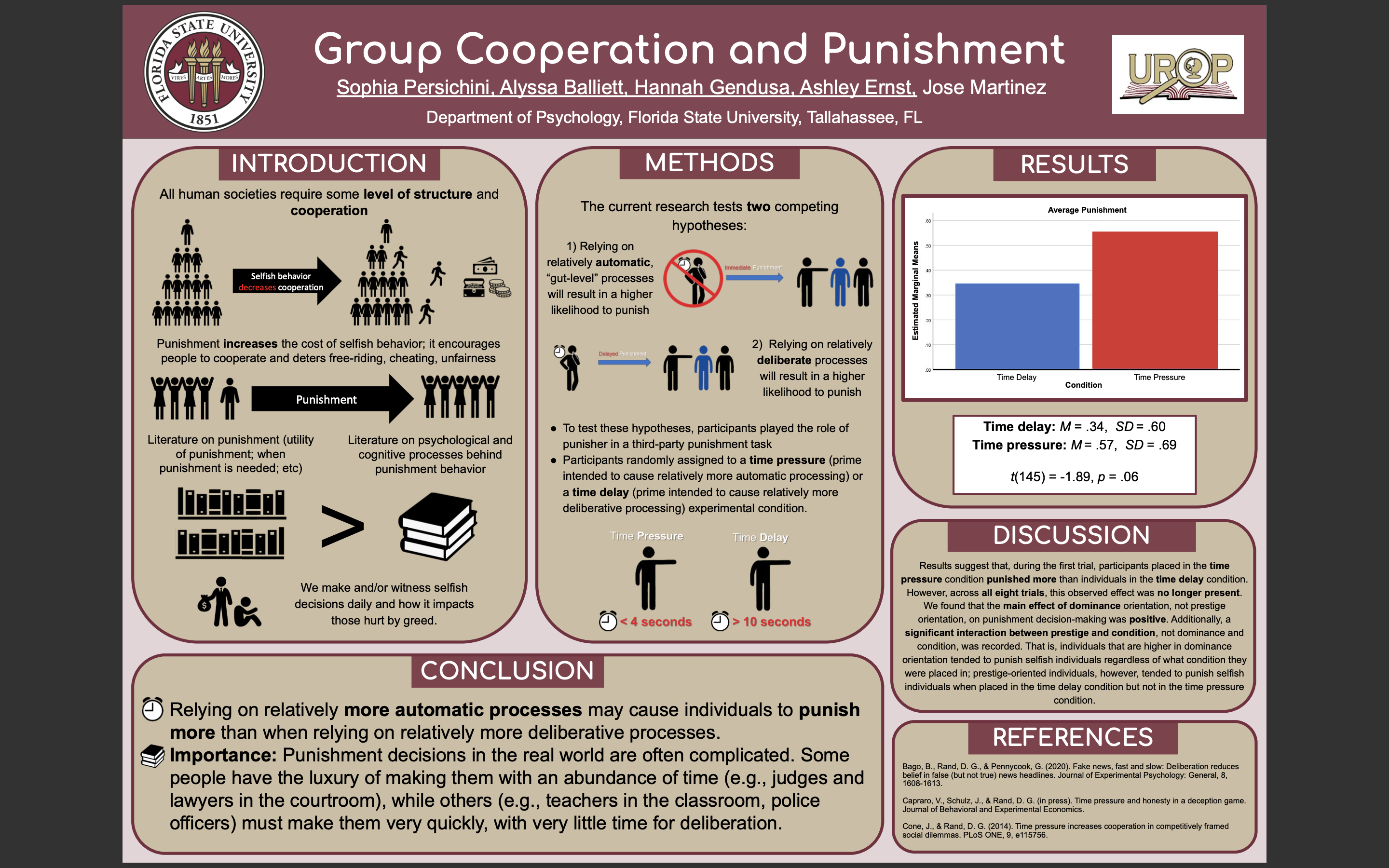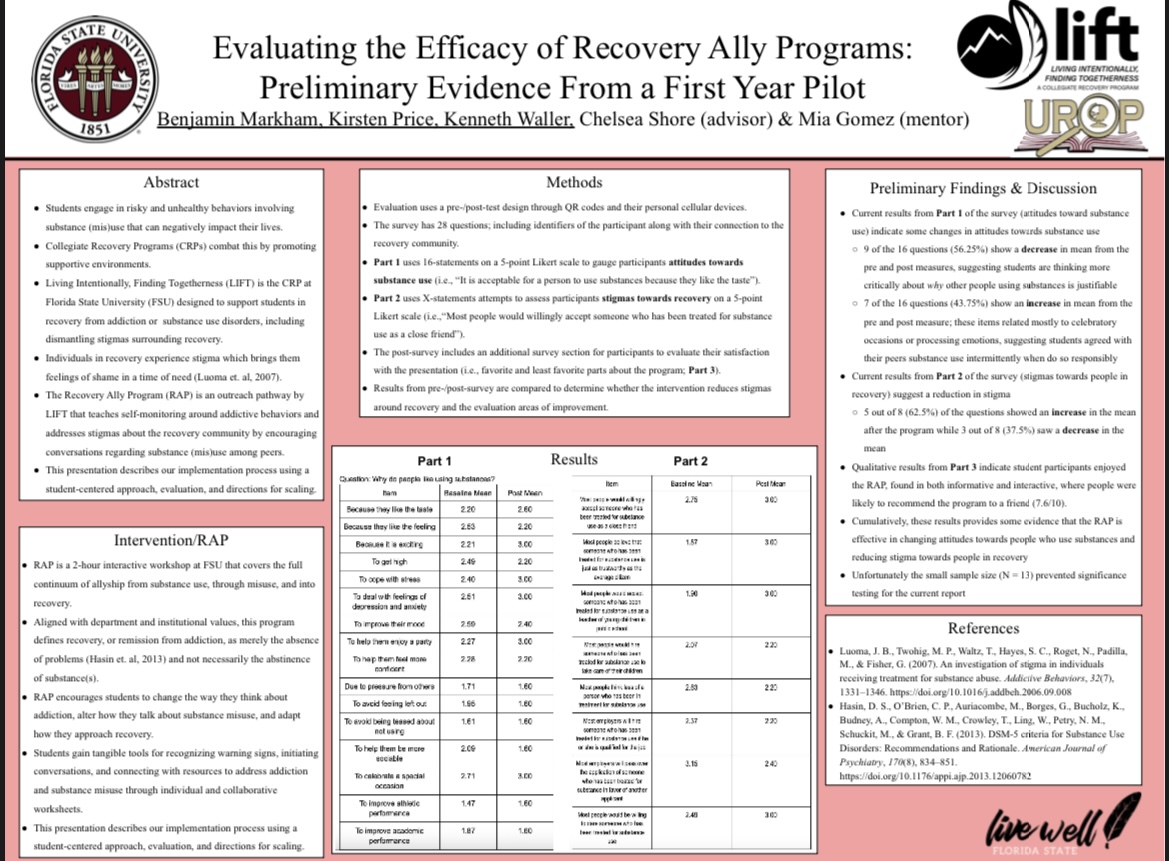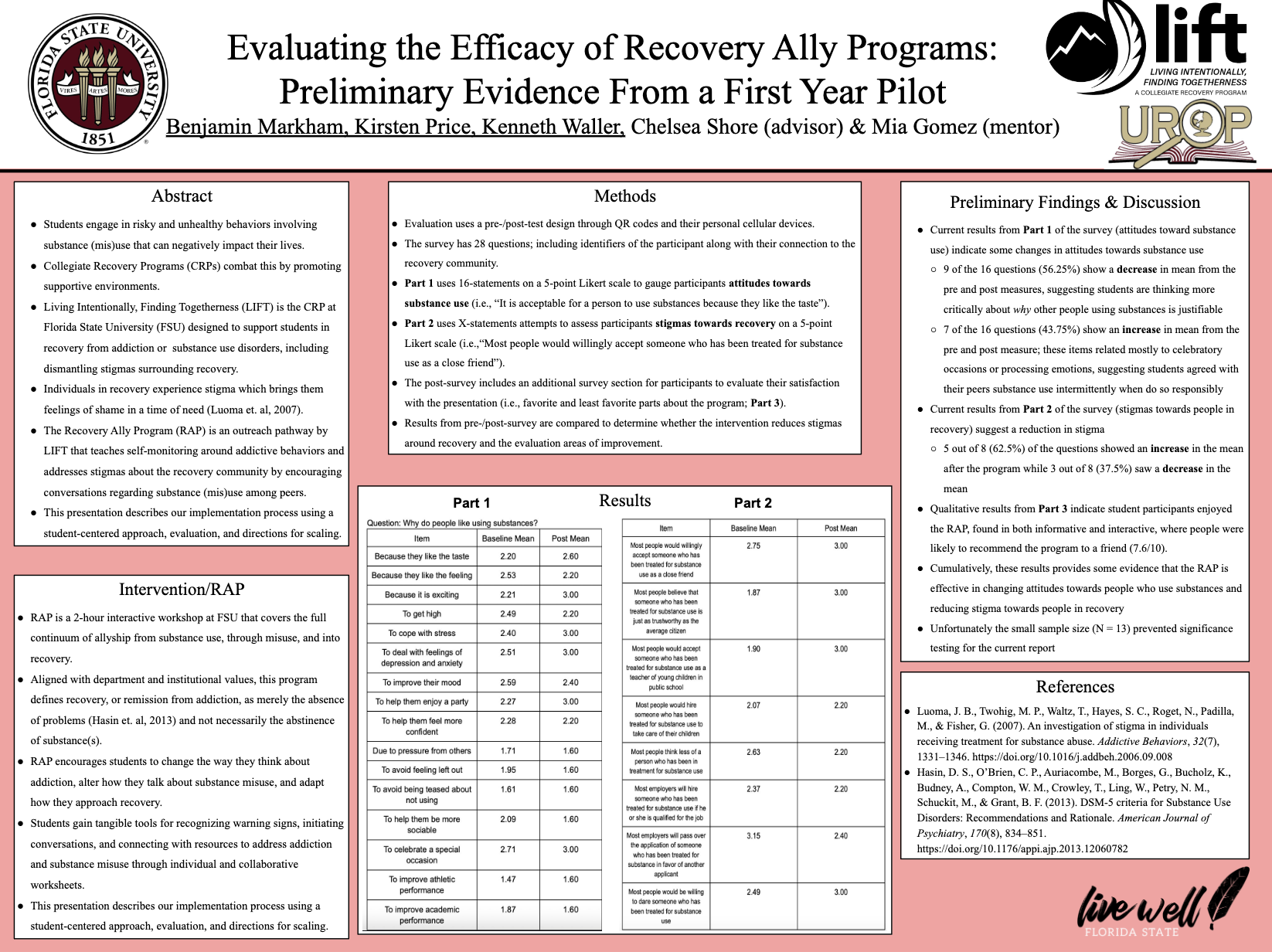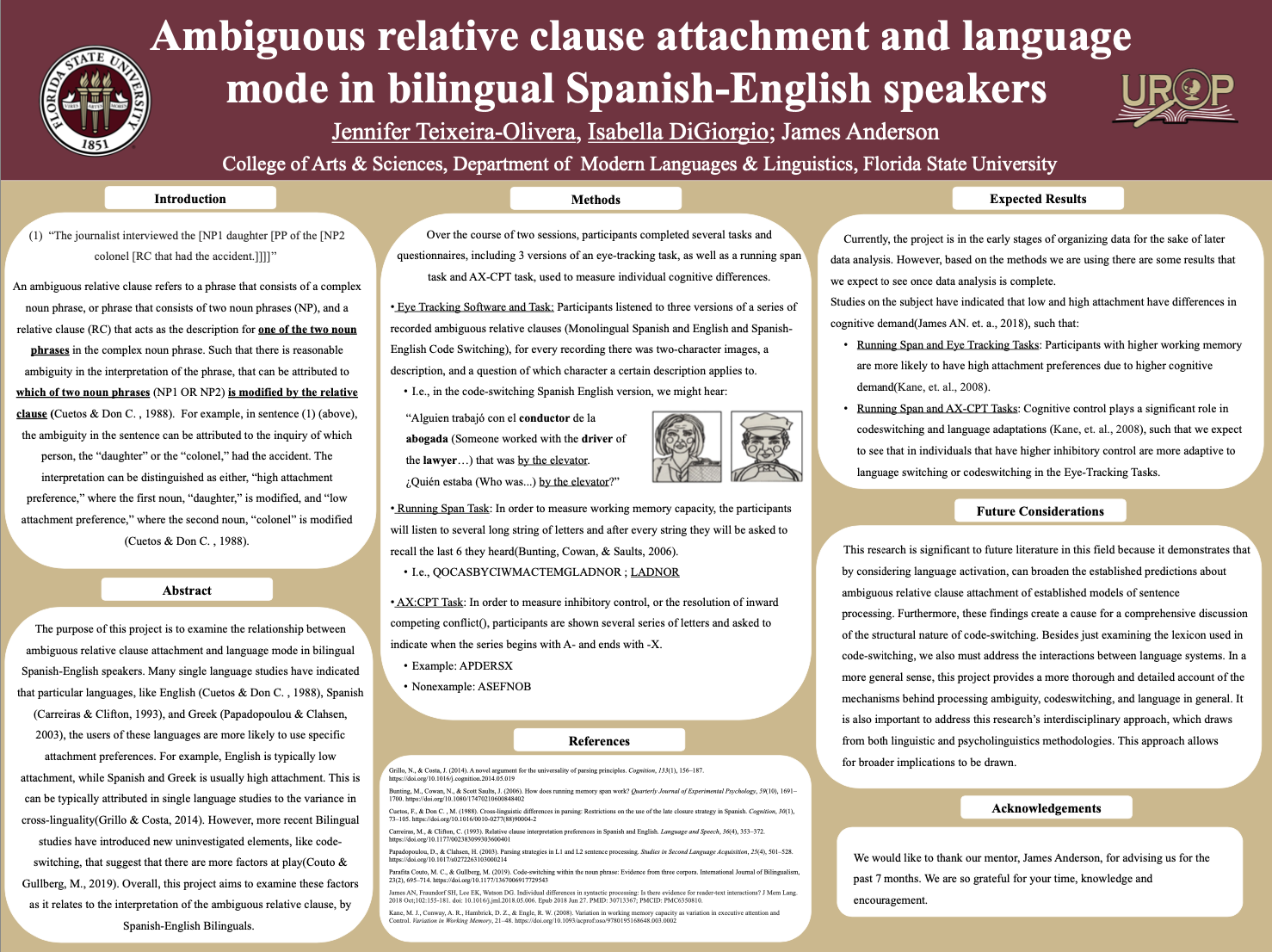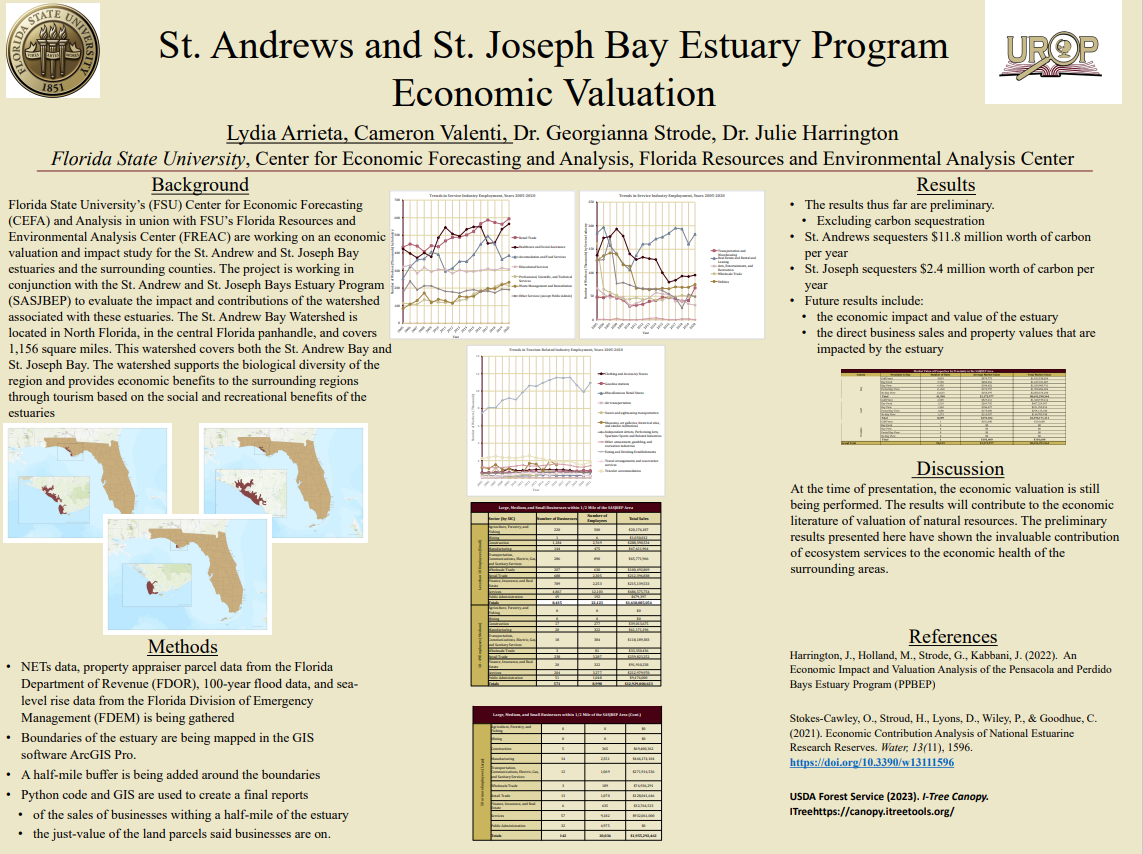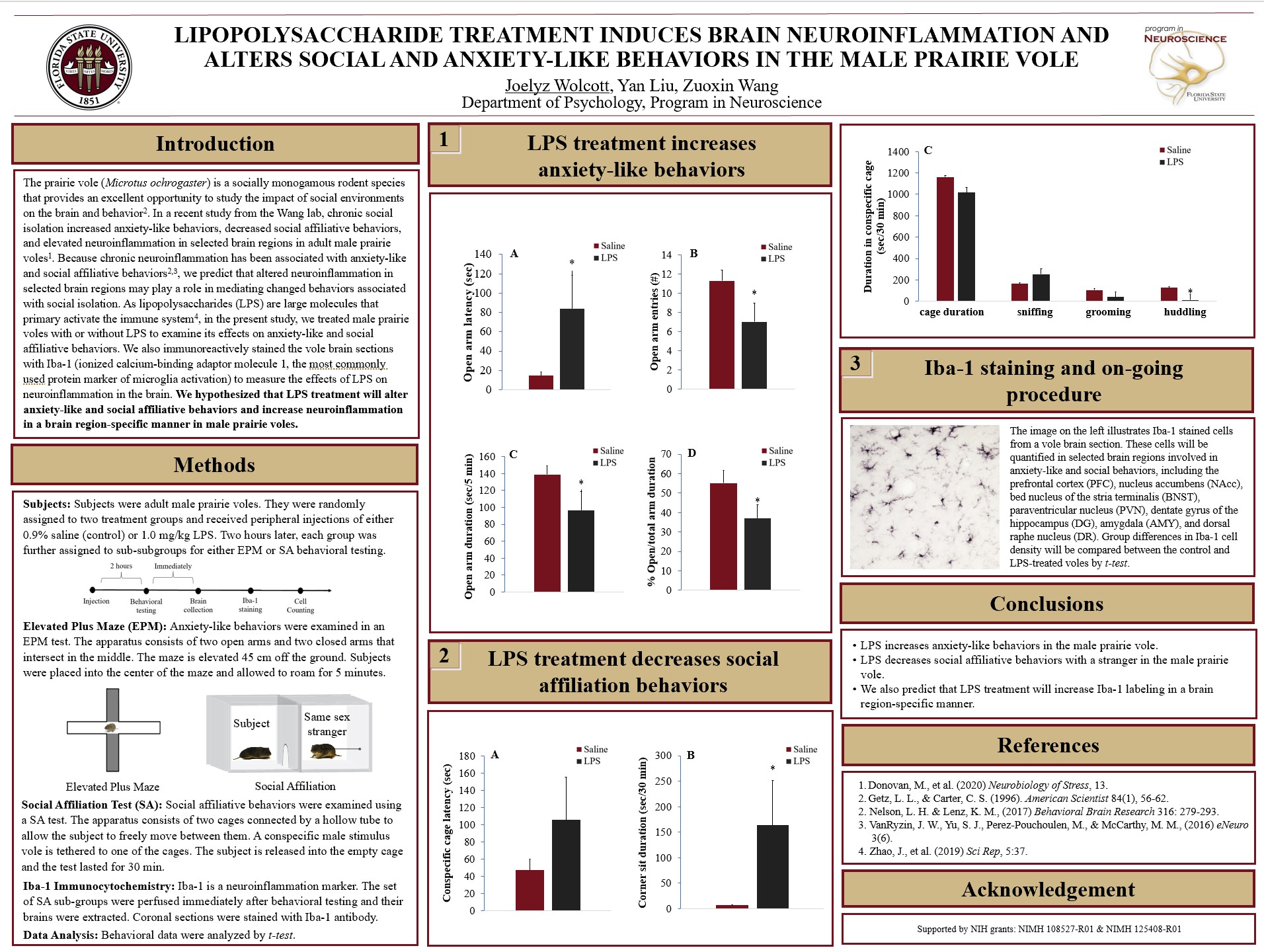Research Symposium
23rd annual Undergraduate Research Symposium, April 6, 2023
Asiyah Ali-Salahuddin Poster Session 1: 11:00 am - 12:00 pm/ Poster #364
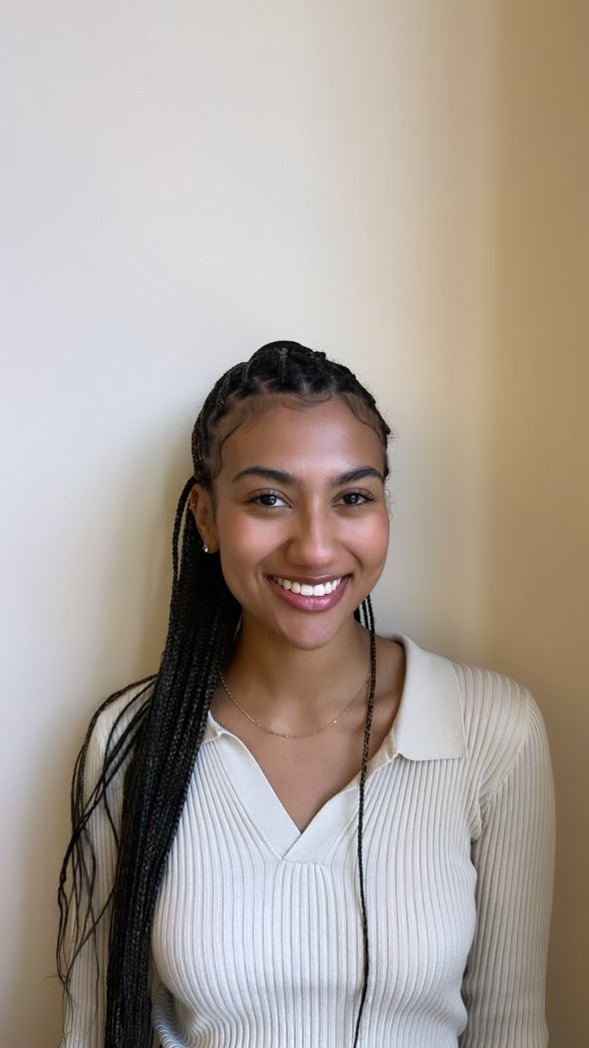
BIO
My name is Asiyah Ali-Salahuddin, and I am a first-generation, second-year student majoring in Retail Entrepreneurship and minoring in Psychology at Florida State University. During my time at FSU, I plan to build my network, grow personally and professionally, and utilize my resources in both my undergraduate and graduate programs so that I am properly equipped to fulfill a career within sustainable product development and fashion designing.
The Black Artists Way
Authors: Asiyah Ali-Salahuddin, Dee SelmoreStudent Major: Retail Entrepreneurship
Mentor: Dee Selmore
Mentor's Department: Arts and Sciences Mentor's College: College of Theatre Co-Presenters: Rachel Rainford
Abstract
Disparities for talented Black Artists has caused many creatives to be shunned out of their desired avenue. Due to systemic racism, there is a long history of Black art either being stolen, copied with no recognition, or failure within the field. Without a doubt, Black creatives have been robbed and stripped of the many things that make them special. Our mission of our project is to highlight the many Black artists who have pioneered and paved the way through their courageous, inspirational and strengthening work. We selected artists who included their history through their work as a way to connect their identity. We selected 6 women to research this past year ( Toni Morrison, Zora Neale Hurston, Dorothy Dandridge, Billie Holiday, Lorraine Hansberry, and Nina Simone) in hopes of identifying their character and their significant contributions to history that haven’t been celebrated.
With the influence of these women, “The Black Artists Way” was created in hopes to educate students, researchers, and many other educators on this discussion. We aspire to inspire people within the arts with a visualization of the brilliance that were these women. In efforts to create more diversification in the classroom, we put together archives that will be included in an educational film for students. To honor these impactful figures, we chose the photos that portrayed them in their glory as that was not always the case with the media in the age that they lived in due to racial injustices.
Keywords: black, art, joy, creative
23rd annual Undergraduate Research Symposium, April 6, 2023
Varshil Nunna Poster Session 4: 4:00 pm - 5:00 pm/ Poster #412
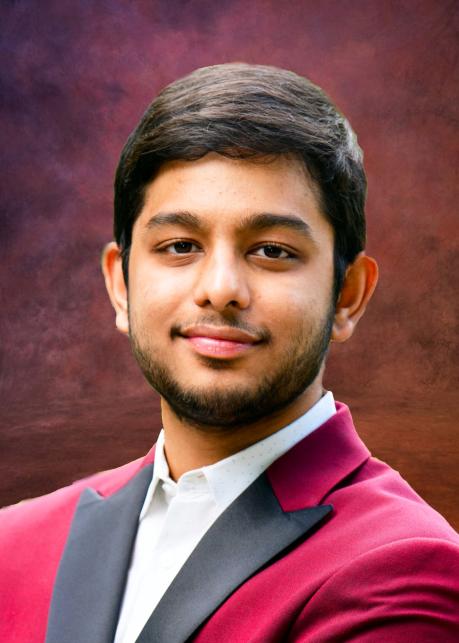
BIO
Hello, my name is Varshil Nunna, a current freshman here at Florida State University who is majoring in pre-biological sciences and is on the pre-med track. I was born and raised in Jacksonville, Florida, before moving to Tallahassee for college. I have research interests regarding anything in the biology field, and I am seeking job opportunities and positions within the medical area after college. I am a highly motivated, efficient, passionate, sociable, and competent student who has a keen interest in any type of biological interaction, including looking at how viruses interact within the human body, hence my involvement with this current project. I look forward to presenting this project to esteemed members of the center for undergraduate research and academic engagement!
Modeling the Interaction Between Dengue Virus NS2B3 and Human cGAS
Authors: Varshil Nunna, Dr. Qian YinStudent Major: Pre-Biological Sciences
Mentor: Dr. Qian Yin
Mentor's Department: Department of Biological Science Mentor's College: College of Arts and Sciences Co-Presenters: Tina Tian
Abstract
The dengue virus (DENV) is a mosquito-transmitted human virus that has remained a significant public health threat. This virus has affected 50 million people worldwide and causes around 20,000 deaths yearly (WHO). To proliferate in the cell, DENV has found ways to bypass the immune response. The NS2B3 protease (consisting of NS2B and NS3) specifically interacts with the cGAS immune sensor to successfully stop the activation of the immune response. In this study, we used protein docking and visualization software to model potential NS2B3-cGAS interactions. These results provide a useful starting point for the experimental validation of NS2B-cGAS interactions, which will deepen our understanding of the disease and lay the foundation for future vaccine and therapeutic developments.
Keywords: Protein, Dengue, Virus, Immune, Interaction
23rd annual Undergraduate Research Symposium, April 6, 2023
Peter Failma Poster Session 4: 4:00 pm - 5:00 pm/ Poster #64
BIO
I am a sophomore from the local Tallahassee area, majoring in Public Health. I hope to pursue a career in healthcare after graduating, as a provider or through a branch of public health. I applied to participate in this particular study because I wanted to learn more about how aspects of mental health, such as a sense of purpose, may show effects through cognitive function. I further gained interest in learning how exercise and life satisfaction may relate to cognitive function through this project.
Project PEEL: Purpose and Engagement in Everyday Life
Authors: Peter Failma, Dr. Angelina SutinStudent Major: Public Health
Mentor: Dr. Angelina Sutin
Mentor's Department: Behavioral Sciences and Social Medicine Mentor's College: College of Medicine Co-Presenters: Isabella Gomez, CJ Palmer
Abstract
The purpose of this study, Purpose and Engagement in Everyday Life (PEEL), is to obtain a better understanding of the relationship between daily cognition and a sense of purpose in life. This presentation specifically looks into a relationship between exercise and life satisfaction and cognition in adults aged 65 and older. Data collection, for each participant, includes a baseline survey regarding their health and well-being, an interview in which they are given cognitive tasks, daily assessments of their mood and well-being as well as additional cognitive tasks, and a final survey including cognitive tasks, and questions on well-being in 2-3 years. Preliminary results, only including the baseline survey and interview data, in the 15 participants analyzed so far, show adults aged 65 and older who exercise (to any extent) perform better on cognitive tasks than those who do not exercise. There is no clear distinction between cognitive function and the amount to which a participant exercises or type of exercise (e.g. plays sports everyday, walks once a month, etc.). Regarding life satisfaction, there is no clear correlation between exercise and how satisfied participants are with their lives. Results are preliminary, and a substantial increase in sample size will be needed in order to better determine if exercise, and possibly to different extents or types of exercise, is linked to cognitive function and satisfaction of life in adults aged 65 and older.
Keywords: Purpose, exercise, satisfaction, psychology, cognitive
23rd annual Undergraduate Research Symposium, April 6, 2023
Jake Perlowin Poster Session 1: 11:00 am - 12:00 pm/ Poster #187
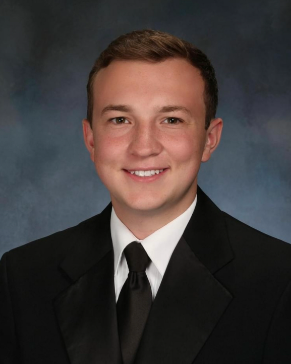
BIO
I am a freshman at FSU who came to Tallahassee to study Political Science and Economics. I aim to run for public office and enter government after college, as well as travel all around the world and start a family. I am a proud central New Jerseyan born and raised who is passionate about this country's past, present, and future, hence why any project exploring the history of America is right up my alley. Specific American figures from the past and their relevance to today are my top priority when conducting research. Dealing with a country that has as controversial and complex a history as the United States, I am a strong believer that we must learn from our past to make the best decisions going forward. I was very excited when the opportunity to be a part of this project was presented to me!
Prince Achille Murat of Territorial Tallahassee
Authors: Jake Perlowin, Dr. Benjamin GunterStudent Major: Political Science
Mentor: Dr. Benjamin Gunter
Mentor's Department: Communication Mentor's College: College of Communication & Information Co-Presenters:
Abstract
Although the overall project is called Tallahassee Turns 200 and is all about the early history of Florida’s capital city, the specific focus of this poster is Prince Achille Murat. Arguably the most influential figure in Tallahassee during the 1820s, he was the French nephew of Napoleon Bonaparte and the husband of Catherine Murat, a descendant of George Washington. Through an in-depth literature review of both primary and secondary sources, it was found that Achille left France once his uncle was exiled, moved to New Jersey, and then down to Florida once he was offered a position in the early government of the state. He impacted all parts of early Tallahassee society through his role in the government, writings on controversial subjects, and aristocratic reputation. He was a plantation owner and a huge defendant of slavery during a time it was often debated. Murat also was a stout fighter against Native Americans having battled against tribes on multiple occasions. Finally, he expressed his gratitude to live in a free country like the United States at any chance he got and repaid the country by bringing his European dance and cultural influences to the sunshine state. His contributions to antebellum Tallahassee cannot go unrecognized when studying the founding of Florida.
Keywords: Prince Achille Murat
23rd annual Undergraduate Research Symposium, April 6, 2023
Reece Windjack Poster Session 4: 4:00 pm - 5:00 pm/ Poster #339
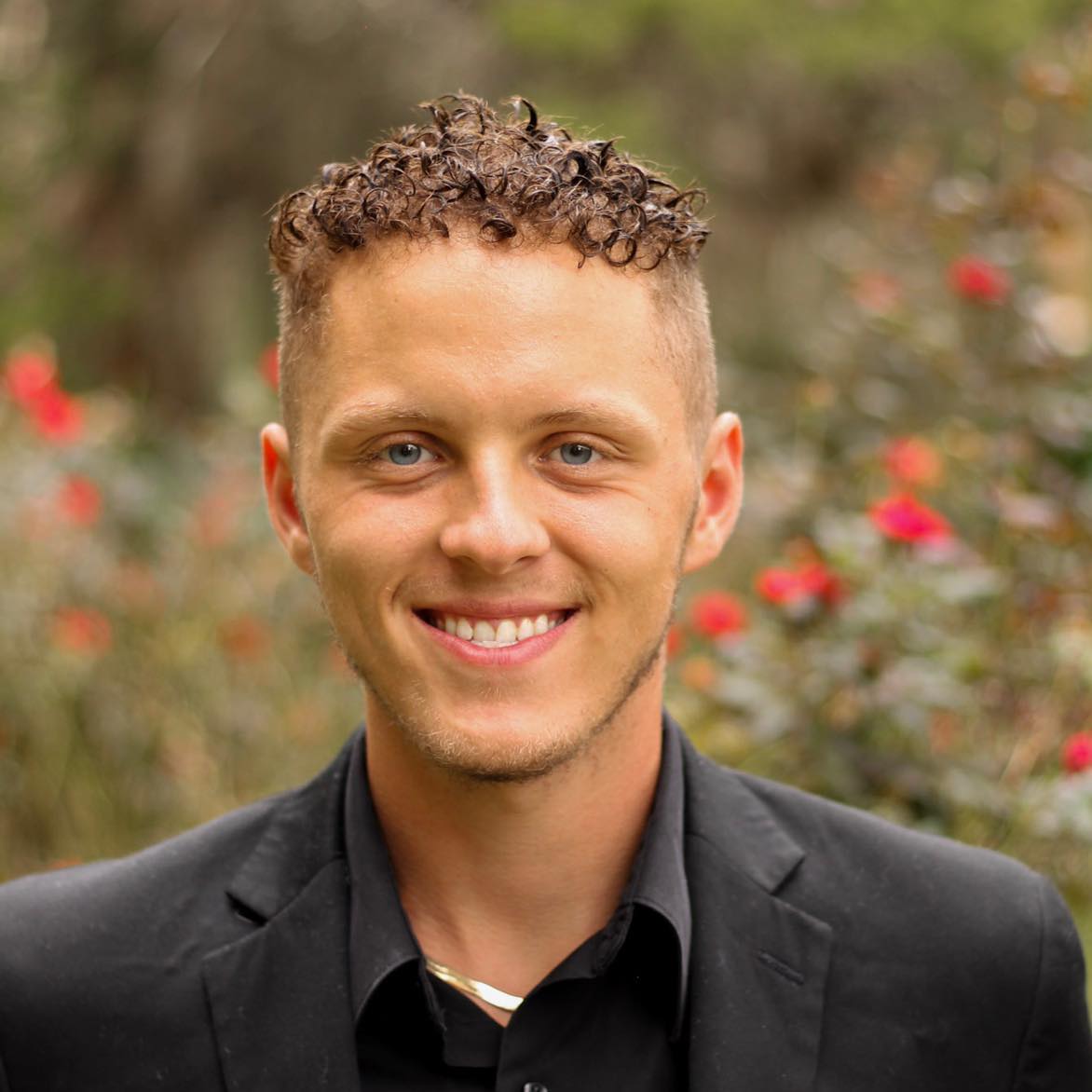
BIO
Reece Windjack is a dual degree Choral Music Education and Political Science student at Florida State University and is set to student teach in the Spring of 2024. He serves as the President of the Florida State University Singers, marches with the Florida State University Marching Chiefs, and is a member of the National Band Sorority, Tau Beta Sigma. His research interests have focused on DEI, Emergency Management/Homeland Security, and topics of import within educational equity. He's originally from rural Georgia and loves pecan pie!
Utilizing the Resilience Theory to Develop a Popular Music Curriculum in the Secondary Music Classroom
Authors: Reece Windjack, Dr. Suzanne ByrnesStudent Major: Choral Music Education and Political Science
Mentor: Dr. Suzanne Byrnes
Mentor's Department: Music Education Mentor's College: College of Music Co-Presenters:
Abstract
Students who are deemed ‘at-risk’ oftentimes face prejudice within curricula that might see them for this ‘risk’, or life challenges rather than their incredible potential. By developing a curriculum that includes popular music, music teachers can tap into this potential, helping assist students who are in difficult circumstances to develop community-building skills and build resiliency by employing the Resiliency Theory framework. In this work, we will examine different popular music education methodologies including poetry/rap therapy, community partnerships, biography projects, and Garage Band, and the various ways they can be applied to the 'thriving' qualities that students need to develop for survival in challenging life circumstances. Resilience Theory puts great emphasis on the learner being in control of their education, the role of the community in trauma response, and developing an understanding that situations can be improved and that the venture is worth the cost (Thriving). Students come into our classroom with a wealth of knowledge, previous experiences, and views on the world, while concurrently bringing in trauma, situational turmoil, and strain. One of the roles of a music educator is to offer them real-life tools to be able to successfully navigate these challenges.
Keywords: Music, Education, Resilience
23rd annual Undergraduate Research Symposium, April 6, 2023
Ava Trail Poster Session 4: 4:00 pm - 5:00 pm/ Poster #53
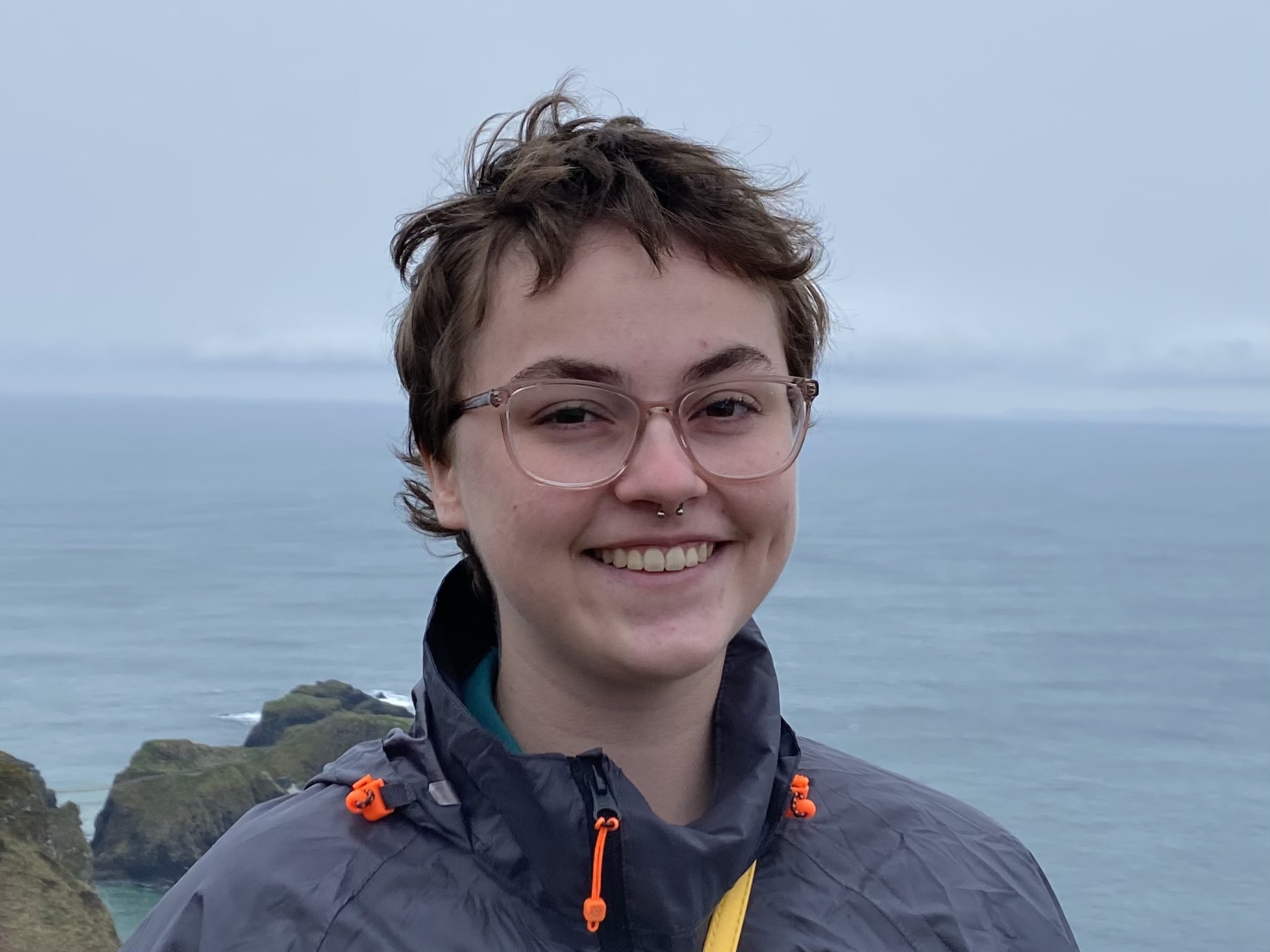
BIO
Ava Trail is a first-year student from Navarre, FL, prusuing a BS in Biologial Science. She is a UROP student in the Kranz lab working under Dr. Sven Kranz to study the growth of different phytoplankton species. Ava plans to attend grad school after undergrad and continue studying plants and animals. In their free time Ava enjoys hiking, crochet, and playing with dogs.
Understanding and describing the growth of the coccolithophore Emiliania huxleyi, an important microalgae in the ocean
Authors: Ava Trail, Dr. Sven KranzStudent Major: Biological Science
Mentor: Dr. Sven Kranz
Mentor's Department: Department of Earth Ocean and Atmospheric Science Mentor's College: College of Arts and Sciences Co-Presenters:
Abstract
Emiliania huxleyi (E. hux) is a unicellular algae (group of coccolithophores) found in most oceans around the world. This unicellular organism can grow rapidly to very high biomass, building the base of the marine food-web. Phytoplankton growth generally has four phases: a lag phase when cells adapt their metabolism to the favorable growth conditions; exponential phase when the cells replicate as fast as they can, drawing down nutrients; stationary phase when cells are deprived of at least one nutrient; lastly, the death phase when cells die. This project focuses on growth and nutrient uptake of E. hux, grown in artificial seawater made with a limiting nutrient mix. Cultures were measured daily for around 4 weeks using flow cytometry, variable fluorescence and nutrient analysis. It took the cells about five days to acclimate to their new conditions and afterwards transitioned into their exponential phase, taking up most of the nutrients. Between about 11 -13 days the cells reached their stationary phase at about 150,000 -200,000 cells/mL when their nitrogen supply became very low. The cells started dying after day 13. None of the E. hux cultures depleted all the nitrogen content available to them, meaning that E. hux might be phosphorous limited instead of nitrogen limited. Work is currently being performed to harvest E. hux at its peak growth phase and feed it to Karenia brevis, the algae that makes up the red tide, to figure out how the phytoplankton interact.
Keywords: phytoplankton, E. hux, coccolithosphere
23rd annual Undergraduate Research Symposium, April 6, 2023
Adrian Velazquez-Lassalle Poster Session 3: 2:45 pm - 3:45 pm/ Poster #56
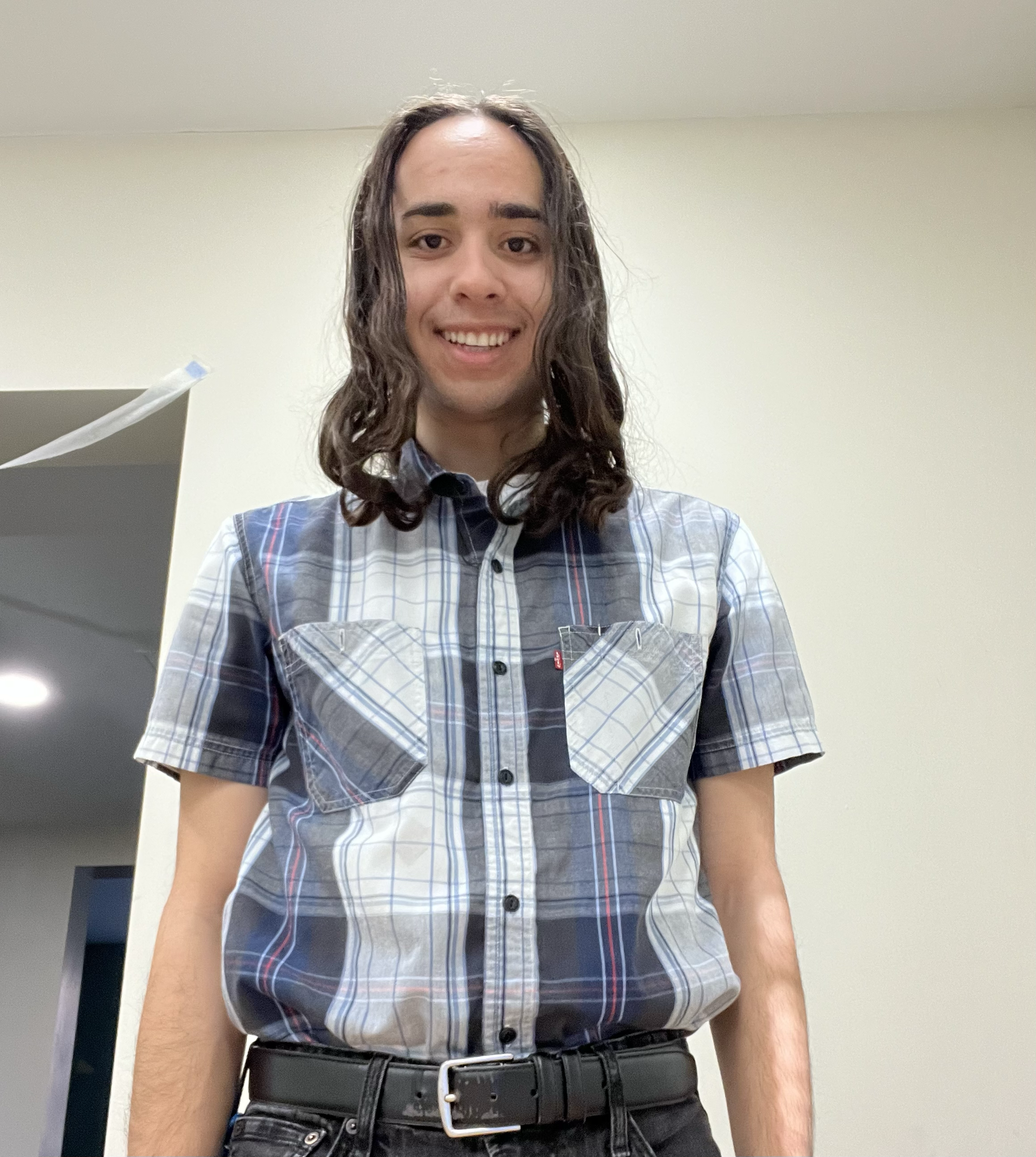
BIO
My name is Adrian Velazquez, and I am currently a first year history student looking to become an economics major. I love exploring the different structures that define societies, their histories, and their economies. For recreation, I enjoy activities like sightseeing, planespotting, playing with Legos, hip-hop dancing, and research. I hope to use the knowledge and experience I gain at FSU to improve on critical problems facing the nation and the world, like secular stagnation, climate change, and economic/social disparities.
Representation of Women in Female-Directed Bollywood Films
Authors: Adrian Velazquez-Lassalle, Ms. Rebecca PetersStudent Major: history
Mentor: Ms. Rebecca Peters
Mentor's Department: Department of Religion Mentor's College: Florida State University Co-Presenters: Salieu Jalloh, Ashley Dempster, Vida Fauble
Abstract
Movies are a form of cultural production that not only represent the environments they come from, but also influence cultural conceptions and understandings themselves. Therefore, the way in which female characters are represented reflects on both Indian society at large as well as the changing dynamics of the film industry. Compared to their male peers, female directors are underrepresented in Bollywood, and as a result, there may be differences in how female directors portray gender on screen. This study explores whether women directors influence how female characters are portrayed in film by analyzing the representation, presentation, and presence of female characters in Bollywood films directed by women. However, investigating a subject of such scope needs to be broken down in order to draw more concrete quantitative data. Using a method known as “coding”, this project went through each speaking female character in selected Bollywood films, noting things such as their demographic makeup, clothing, gendered behavior, and the way they interact with other women. The coding process was done multiple times per character to ensure the reliability of the data. Although the study is still ongoing, the investigation of films completed so far has resulted in notable preliminary results.
Keywords: women movie film representation
23rd annual Undergraduate Research Symposium, April 6, 2023
Emily Colvin Poster Session 3: 2:45 pm - 3:45 pm/ Poster #124

BIO
I am a junior from the Washington, D.C. area majoring in Psychology and minoring in Child Development. Currently, I am a Research Assistant in the MMTI Freeze Research Study in the Anxiety and Behavioral Health Clinic. After completing my first year at FSU abroad in Valencia, Spain, I returned to the main campus in Tallahassee and am a member of the CHAARG workout club and Best Buddies. In my free time, I love to do CrossFit, paint, and read! Some additional hobbies I have are snowboarding, scuba diving, and traveling.
My career goal is to be a behavioral therapist for children with autism. I have a passion for working with families and children affected by Intellectual and Developmental Disorders, and I plan to pursue a Masters in ABA Therapy after graduation.
Relationships Between Childhood Experiences, Threat Responding, and Posttraumatic Stress
Authors: Emily Colvin, Dr. Norman B. SchmidtStudent Major: Psychology
Mentor: Dr. Norman B. Schmidt
Mentor's Department: Psychology Mentor's College: College of Arts and Sciences Co-Presenters: Josefina Yezzi and Rhea Bhatia
Abstract
Early childhood encompasses critical stages of cognitive development, and a child’s attachment to their caregivers plays a vital role. Traumatic, stressful, and unpredictable experiences with caregivers in childhood can shape how an individual responds to threats and potentially lead to mental health difficulties. There are three key elements of threat responding: fight, flight, and freeze. It is common for individuals to freeze when they first detect a threat and then prepare to deal with it by either fighting or fleeing the situation. However, in some threatening situations, freezing may persist. We refer to this prolonged freeze response as “tonic immobility”. Individual differences in threat responding, and tonic immobility specifically, have been linked to increased risk for posttraumatic stress disorder (PTSD). Therefore, the current study sought to examine the relationships between childhood experiences, threat responding, and PTSD. Female participants (N = 35) were recruited from the FSU SONA subject pool and the local community. As part of a larger experimental study, participants provided informed consent and completed questionnaires assessing demographic information, adverse childhood experiences, childhood unpredictability, and harshness, fight flight freeze tendencies, experiences of tonic immobility, and PTSD symptoms. Correlations suggest that adverse childhood experiences, unpredictability, and harshness are associated with experiences of tonic immobility and PTSD symptoms. However, only childhood unpredictability was uniquely related to tonic immobility. Meanwhile, childhood harshness uniquely predicted flight tendencies. Experiences of tonic immobility and freeze tendencies predicted higher PTSD symptoms. These findings provide evidence for the impact of childhood experiences on threat responding and PTSD.
Keywords: Tonic Immobility, Childhood, PTSD
23rd annual Undergraduate Research Symposium, April 6, 2023
Sophie Vega Poster Session 2: 1:30 pm - 2:30 pm/ Poster #379
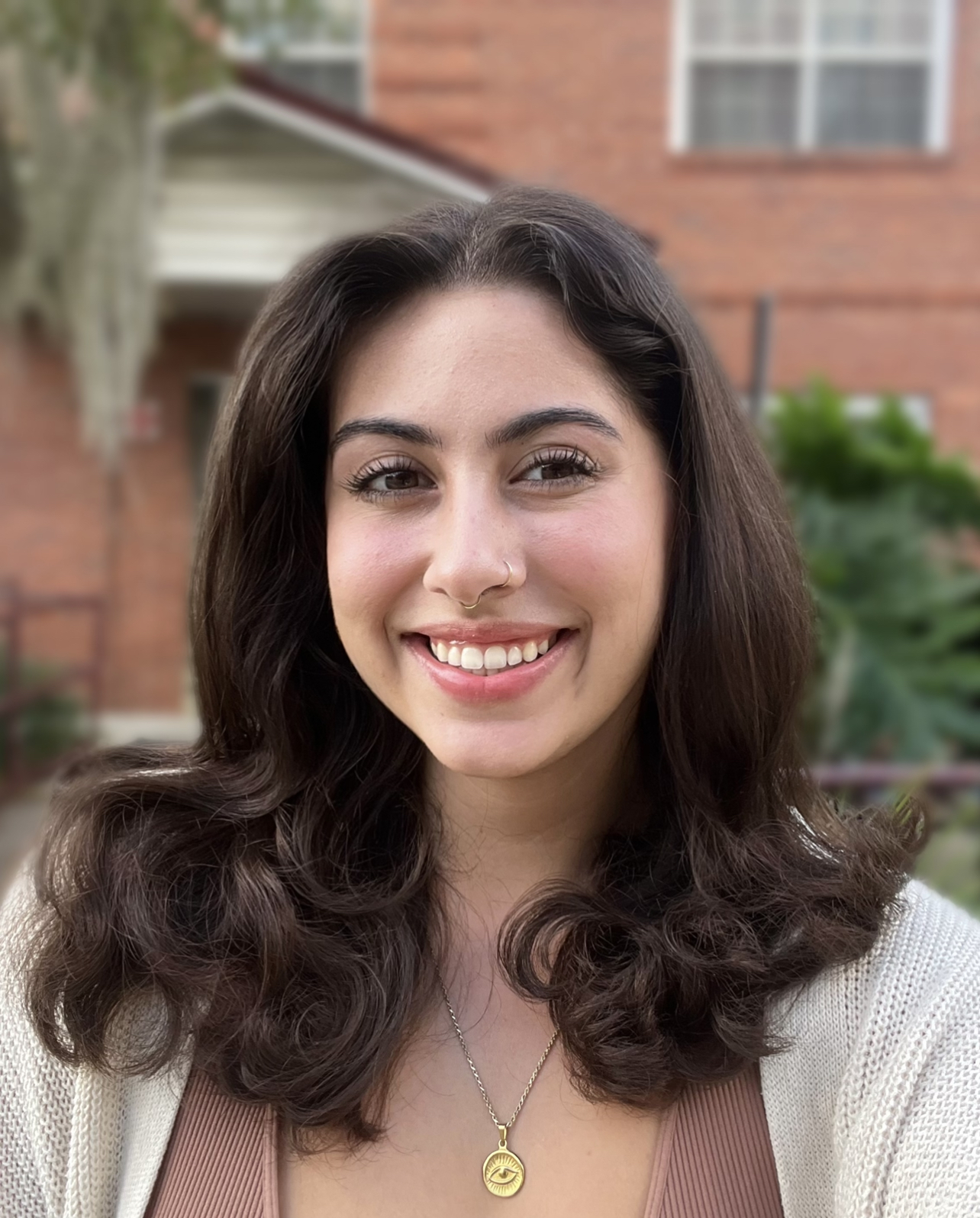
BIO
Sophie is a Sophomore at Florida State, double majoring in Public Relations and Psychology. If you can’t find her hammocking on Landis, she’s probably journaling at local coffee shops or going hiking with her friends! Sophie’s research focus is prejudice, bias, and social motivations, with cross-cultural analysis. She is currently studying the intergroup dynamic of prejudice, the perceived malleability of prejudiced mindsets, and how we can promote collective action for groups experiencing oppression. Sophie is excited to continue this line of research outside of UROP and is currently in training to become a UROP Leader for the upcoming school year.
The Malleability of Prejudiced Mindsets: A Psychological Exploration Involving Race and Sexuality
Authors: Sophie Vega, Dr. Ashby PlantStudent Major: Psychology & Public Relations
Mentor: Dr. Ashby Plant
Mentor's Department: Psychology Mentor's College: Arts & Sciences Co-Presenters:
Abstract
Do people with prejudiced mindsets have the capacity for change? How do beliefs about prejudice change the way people interact? In our research, we explored how beliefs about the malleability of prejudiced mindsets influence interactions between groups. Study 1 investigated the relationship of race and the perception of prejudice as a malleable or fixed mindset, and Study 2 further extended this line of research by looking at participant sexuality. We hypothesized that minority group members would view prejudice toward their own group as more fixed than majority group members. In Study 1, Black (N=144) and non-Black (N=156) American participants (N=303) completed an online survey through CloudResearch. This survey implemented SOMI (Suspicion of Motivations Index) questions to obtain participants' beliefs about personal (internal) and social (external) motivations of others. In study 2, gay and non-gay American participants (N=280) completed an online survey through CloudResearch, utilizing SOMI questions. Data was analyzed using ANOVA, as well as Independent Samples T-tests and Regression Analyses. Results for suggest that Black participants viewed prejudice toward Black people as less malleable and more fixed than non-black participants (M=2.65, SD=1.42). Group perception differences in the frequency of everyday prejudice and the impact of legislation on reducing prejudice mediated beliefs about whether or not prejudice is malleable. Suspicion of non-Black people’s motivations to interact without prejudiced independently mediated these group differences. In Study 2, there was no significant difference in perceptions of prejudice between gay and non-gay participants.
Keywords: Psychology, Prejudice, Race, Sexuality, Black
23rd annual Undergraduate Research Symposium, April 6, 2023
Reese Riezinger Poster Session 3: 2:45 pm - 3:45 pm/ Poster #16
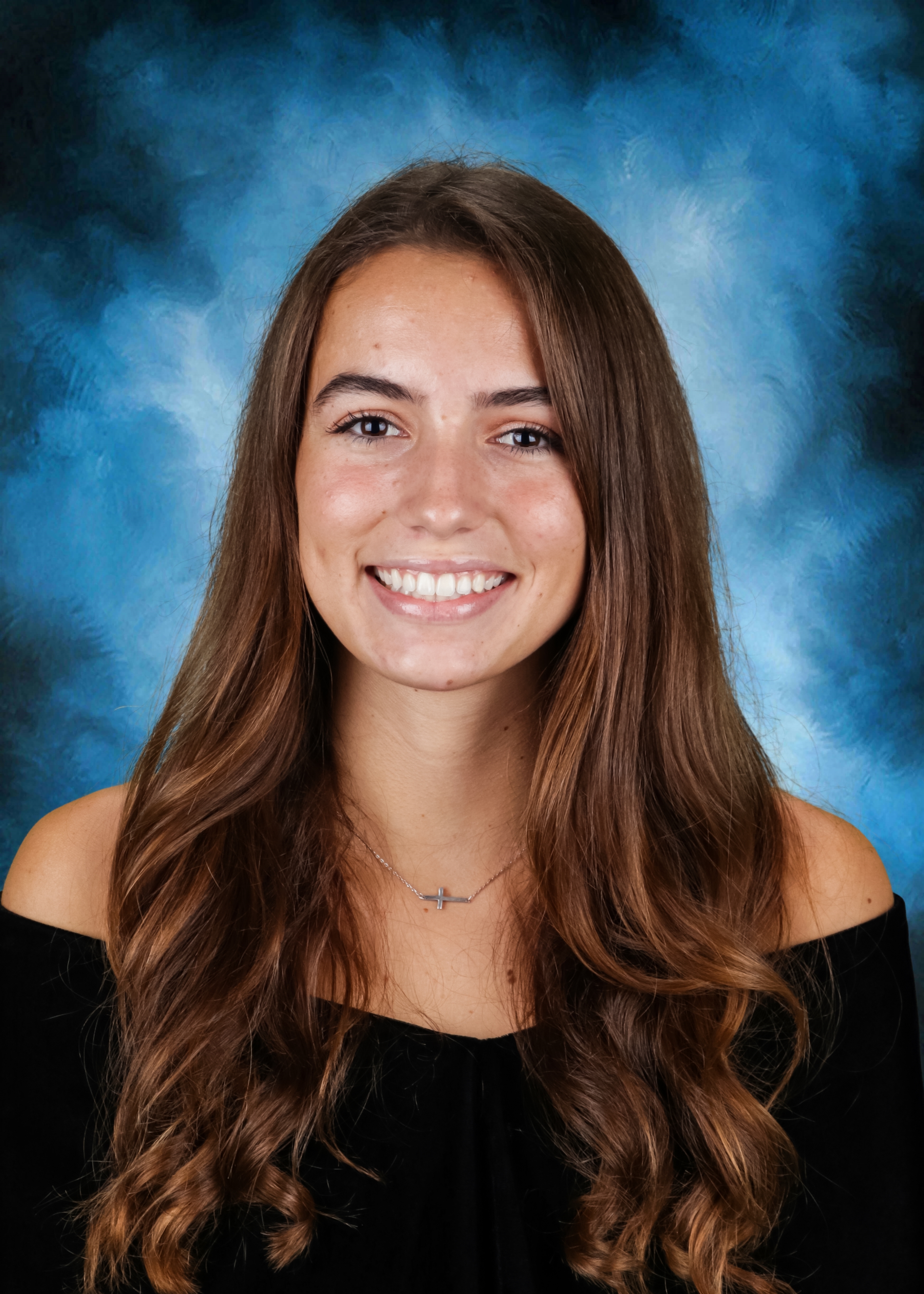
BIO
Hello! I am from South Florida and I live right by the beach so I spend a lot of time there when I'm back home. I love learning and listen to lots of podcasts and read as often as I can. This research project has been a really amazing opportunity and I would recommend that everyone participates in UROP.
Learning a Second Language Subconsciously
Authors: Reese Riezinger, Shaofeng LiStudent Major: Communication Science and Disorders
Mentor: Shaofeng Li
Mentor's Department: Foreign and Second Language Education Mentor's College: College of Education Co-Presenters: Logan Jones, Brooke Engler, Darius Frazier, Shawny Nicolas, Stephanie Kulenguskey
Abstract
Abstract
Second language learning is taught in the majority of schools across the globe in order to communicate and collaborate with one another. This study looks into one specific type: unconscious learning. In the data collection stage, participants in China, who have learned English in many different ways, were surveyed. The participants all looked at the same graphics put in front of them and then told the story they saw in their own words, in English. These results were then taken and rated on 2 factors: comprehensibility and accentedness. The results are then going to be analyzed and compared. The goal is to discover the influence that unconscious second language acquisition has on the language learning process and how these results differ from those in a traditional learning environment.
Keywords: language, second language, subconscious, subconscious learning
23rd annual Undergraduate Research Symposium, April 6, 2023
Maz Farabee Poster Session 2: 1:30 pm - 2:30 pm/ Poster #285
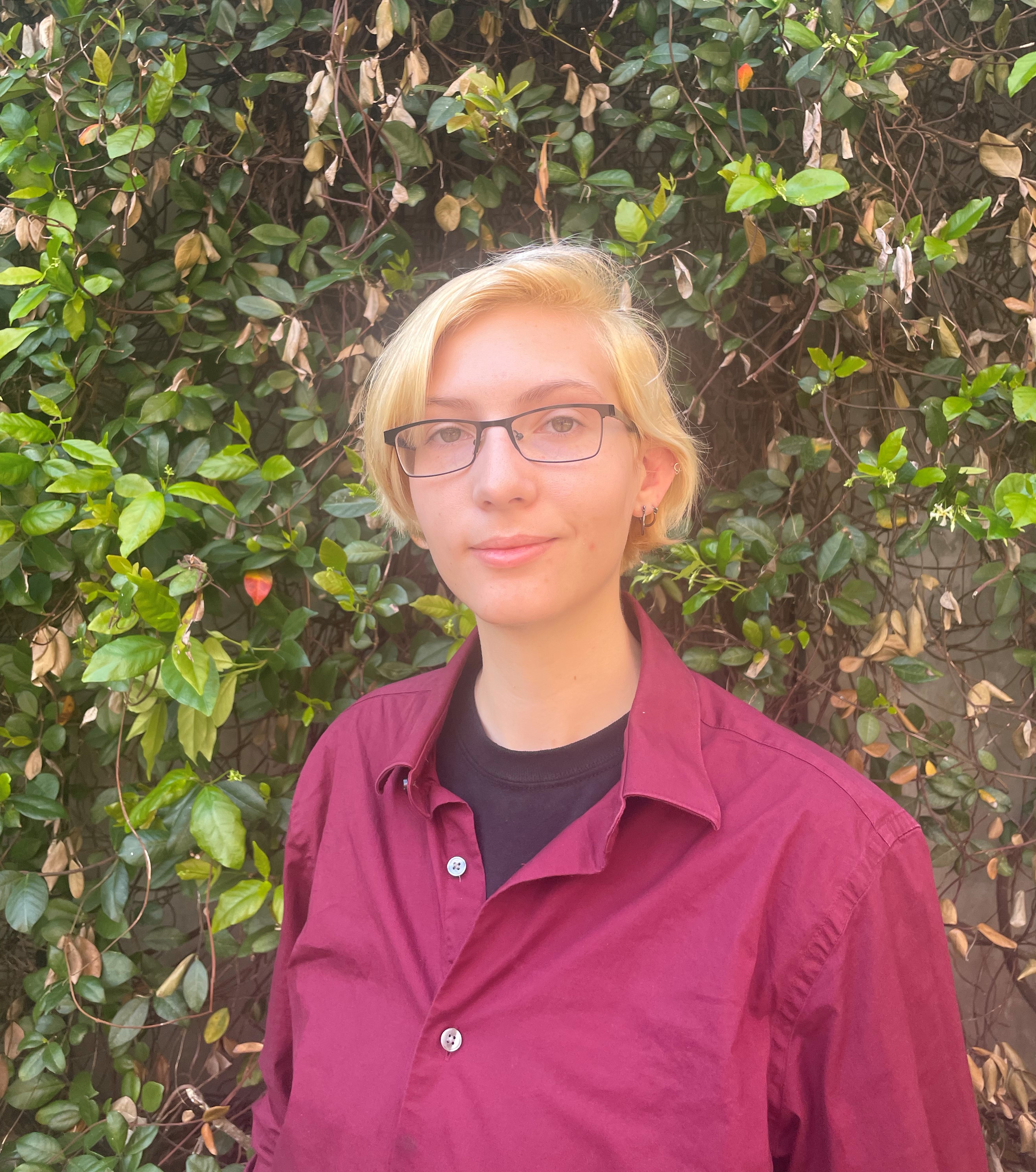
BIO
Started FSU Fall 2021 with an interest in psychology, a goal to graduate in 3 years, and a plan to get into a PhD program. I am currently in my second year and on track. My current interests for programs are human factors or industrial organizational psychology. I'm a bit of a numbers person, that's part of the reason I took on a statistics minor, the other part is admittedly because it looks great for grad school. I plan to continue participating in research throughout the rest of my undergrad. I am very active on campus as a residents assistant, an active member of the ASLC, and a future peer instructor.
Exploring How Practical Flexibility is Correlated with Procedural Knowledge in Linear Equations
Authors: Maz Farabee, Qiushan LiuStudent Major: Psychology and Criminology with a minor in Statistics
Mentor: Qiushan Liu
Mentor's Department: Psychology Mentor's College: Arts and Sciences Co-Presenters:
Abstract
This project is meant to explore the role of practical flexibility in problem solving cognition, specifically concerning basic linear equations. This is important to understand how people solve logic problems, and what factors predict success. Within this study we hypothesize that practical flexibility is correlated with procedural knowledge. This study’s research method has participants solve a set of algebra linear equations without any direction, then in a second section solve a different yet similar set of equations but this time using the innovative strategy outlined in the problem instructions. In the results, for the first problem set participants ability to pick the most efficient strategy was evaluated. This was coded as a 1 point for every time they use the efficient strategy. For the second problem set, the participants’ ability to execute an innovative strategy by correctly solving the problem was evaluated. For practical flexibility to be correlated with procedural knowledge, an individual’s ability to pick the best strategy should be correlated with their ability to successfully execute the innovative problem-solving strategy. This data is preliminary, and there are plans to continue collecting data into the future to better understand how practical flexibility and procedural knowledge relate to each other, and problem solving.
Keywords: Psychology Math Cognition
23rd annual Undergraduate Research Symposium, April 6, 2023
Brooke Engler Poster Session 4: 4:00 pm - 5:00 pm/ Poster #16
BIO
My name is Brooke Engler and I am originally from Wayne, New Jersey. I am a sophomore here at Florida State University and I am studying accounting. I love accounting and business, but in UROP I wanted to get to experience a different side of research, in a major and career path different from my own. In my free time I love reading, working out, and hanging out with my friends and family.
Learning a Second Language Subconsciously
Authors: Brooke Engler, Shaofeng LiStudent Major: Accounting
Mentor: Shaofeng Li
Mentor's Department: Foreign and Second Language Education Mentor's College: College of Education Co-Presenters: Logan Jones, Reese Riezinger, Darius Frazier, Shawny Nicolas, Stephanie Kulenguskey
Abstract
Second language learning is taught in the majority of schools across the globe in order to communicate and
collaborate with one another. This study looks into one specific type: unconscious learning. In the data collection
stage, participants in China, who have learned English in many different ways, were surveyed. The participants all
looked at the same graphics put in front of them and then told the story they saw in their own words, in English.
These results were then taken and rated on 2 factors: comprehensibility and accentedness. The results are then going
to be analyzed and compared. The goal is to discover the influence that unconscious second language acquisition has
on the language learning process and how these results differ from those in a traditional learning environment.
Keywords: language, subconscious, second language
23rd annual Undergraduate Research Symposium, April 6, 2023
Ashley Ernst Poster Session 1: 11:00 am - 12:00 pm/ Poster #52
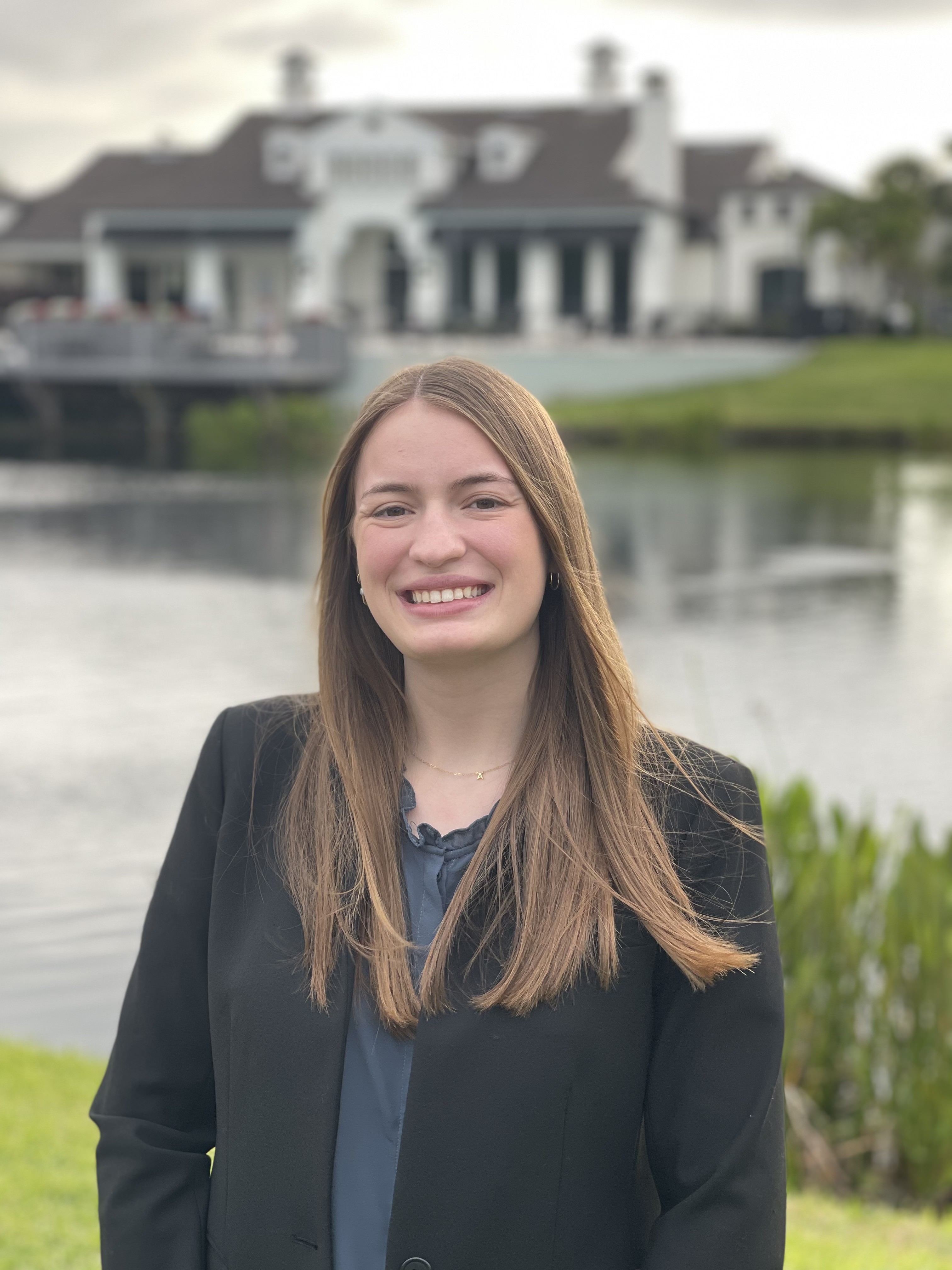
BIO
I am a sophomore majoring in Political Science with a minor in Criminology from Cincinnati, Ohio. My research interests include human behavior, decision-making of high profile actors, and international political trends. After undergrad, I hope to go to law school and become an international human rights attorney.
Group Cooperation and Punishment
Authors: Ashley Ernst, Jose MartinezStudent Major: Political Science
Mentor: Jose Martinez
Mentor's Department: Department of Psychology Mentor's College: College of Arts and Sciences Co-Presenters: Sophia Persichini, Alyssa Balliett, and Hannah Gendusa
Abstract
Punishment is useful for increasing group cooperation and reducing selfish behavior. However, many questions remain regarding the psychological and cognitive processes that drive punishing behavior. The current research tests two competing hypotheses regarding the processes behind punishment: (1) punishment relies on relatively automatic processes (2) punishment relies on relatively deliberate processes. To test these hypotheses, participants played the role of “punisher” and were placed in either a time pressure (prime intended to cause relatively automatic processing) or a time delay (prime intended to cause relatively deliberative processing) experimental condition. Results suggest that, during the first trial, participants in the time pressure condition punished more than individuals in the time delay condition. However, across all eight trials, this observed effect was no longer present. Secondary analyses examined the potentially moderating roles of individual differences in dominance and prestige. We found that the main effect of dominance orientation, not prestige orientation, on punishment decision-making was positive. Additionally, a significant interaction between prestige and condition, not dominance and condition, was recorded. These findings suggest that, when individuals are provided time to deliberate, the decision to punish may not be chosen, allowing the uncooperative behavior exhibited by a selfish individual to go unaddressed. While dominance-orientated individuals appear to punish a selfish individual regardless of the time allotted, prestige-orientated individuals may only make such a decision after deliberation. While punishment can be a costly behavior, it is a necessary decision as there may be circumstances that disincentivize individuals from punishment decision-making that must be addressed.
Keywords: Punishment, decision-making, cooperation
23rd annual Undergraduate Research Symposium, April 6, 2023
Kirsten Price Poster Session 4: 4:00 pm - 5:00 pm/ Poster #100
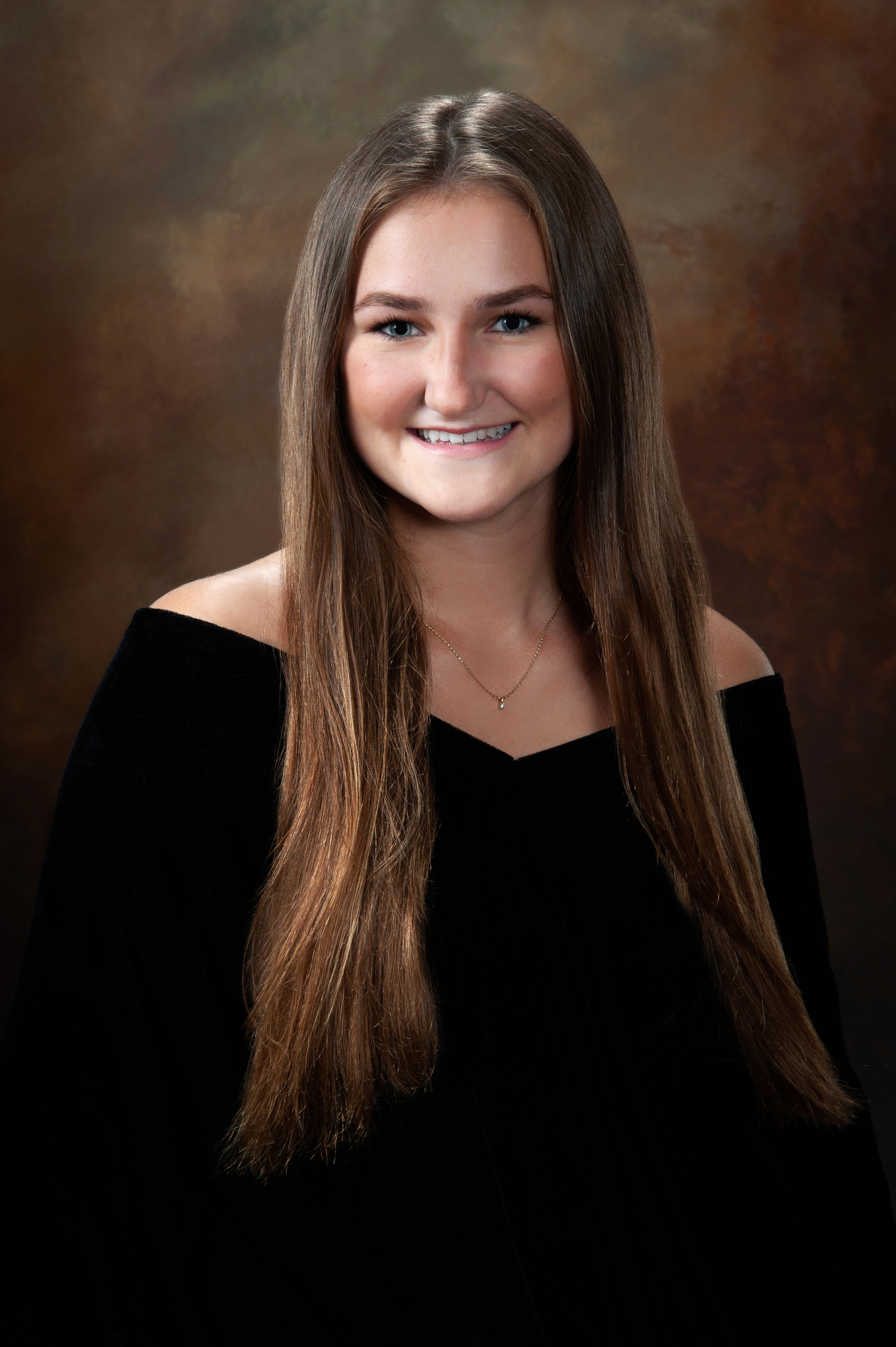
BIO
Kirsten is a second-year student majoring in Pre-Public Health and double minoring in Communications and Public Administration at Florida State University. She serves as an undergraduate research assistant for the recovery ally program and the campus rec program within the Center for Health Advocacy and Wellness. Specifically, through the recovery ally program, this program has not only taught her how to support her peers going through recovery but also understand how to reach out to those that may need support. Going forward, she plans on utilizing her voice to talk about the stigmas surrounding substance misuse and how to address misuse specifically on college campuses. Kirsten plans on attending graduate school for public health and being an ally and supporter of people in recovery and those that are wishing to be in recovery.
Evaluating the Efficacy of Recovery Ally Programs: Preliminary Evidence From a First Year Pilot
Authors: Kirsten Price, Chelsea ShoreStudent Major: Public Health
Mentor: Chelsea Shore
Mentor's Department: Higher Educational Leadership & Policy Studies Mentor's College: College of Education Co-Presenters: Ben Markham, Kenneth Waller
Abstract
The Recovery Ally Program (RAP) is a 2-hour interactive workshop at Florida State University attempting to address the full continuum of allyship from substance use, through misuse, and into recovery. It facilitates self-reflection and self-monitoring around substance use and misuse. It encourages students to change the way they think about addiction, alter how they talk about substance misuse, and adapt how they approach recovery. Students gain tangible tools for recognizing warning signs, initiating conversations, and connecting with resources to address addiction and substance misuse. This presentation describes our implementation process using a student-centered approach, evaluation, and directions for scaling. We wanted to test the efficacy of this program by determining if it increases student’s confidence in talking to their peers about substance misuse. Participants were surveyed before and after the program in order to obtain data.
Keywords: Collegiate Recovery, Health and Wellness Initiatives, College student initiatives
23rd annual Undergraduate Research Symposium, April 6, 2023
Kenneth Waller Poster Session 1: 11:00 am - 12:00 pm/ Poster #100
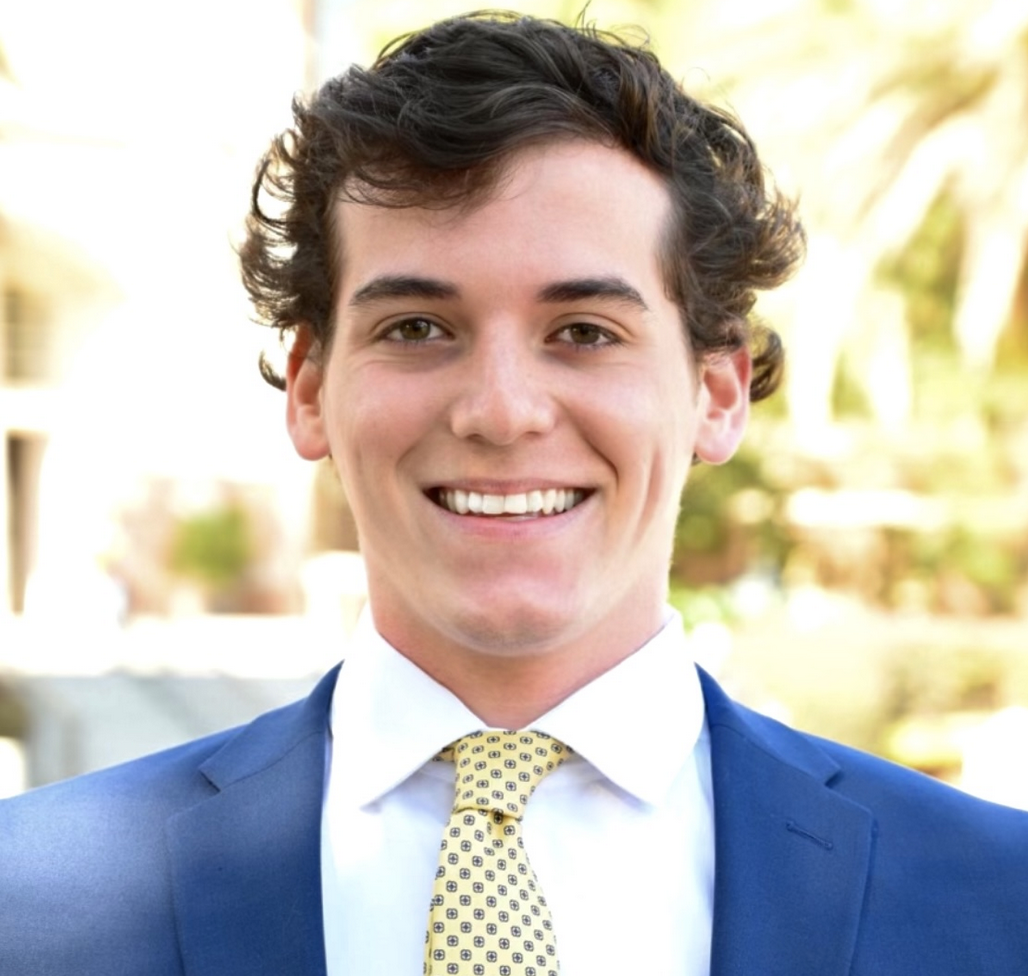
BIO
Kenneth is a second-year student studying biology on the premedical track at Florida State University. He currently serves as a research assistant for the recovery ally program located within the Center for Health Advocacy and Wellness. The program has taught him the importance of living a healthy life, and providing support for to his peers. His experience working with the recovery ally program has pushed him to confront the stigmas that are connected with addiction and recovery and understand how we can eliminate substance misuse for good. He further plans on attending medical school someday where he can use his knowledge and experience from the program to better promote a healthier community. He looks forward to leaving his mark on this program and learning more about the collegiate recovery program.
Evaluating the Efficacy of Recovery Ally Programs: Preliminary Evidence From a First Year Pilot
Authors: Kenneth Waller, Chelsea ShoreStudent Major: Biology
Mentor: Chelsea Shore
Mentor's Department: Higher Educational Leadership and Policy Studies Mentor's College: College of Education Co-Presenters: Ben Markham, Kirsten Price
Abstract
The Recovery Ally Program (RAP) is a 2-hour interactive workshop at Florida State University attempting to address the full continuum of allyship from substance use, through misuse, and into recovery. It facilitates self-reflection and self-monitoring around substance use and misuse. It encourages students to change the way they think about addiction, alter how they talk about substance misuse, and adapt how they approach recovery. Students gain tangible tools for recognizing warning signs, initiating conversations, and connecting with resources to address addiction and substance misuse. This presentation describes our implementation process using a student-centered approach, evaluation, and directions for scaling.
Keywords: Recovery, Health and Wellness, College Student Initiatives
23rd annual Undergraduate Research Symposium, April 6, 2023
Isabella DiGiorgio Poster Session 4: 4:00 pm - 5:00 pm/ Poster #288
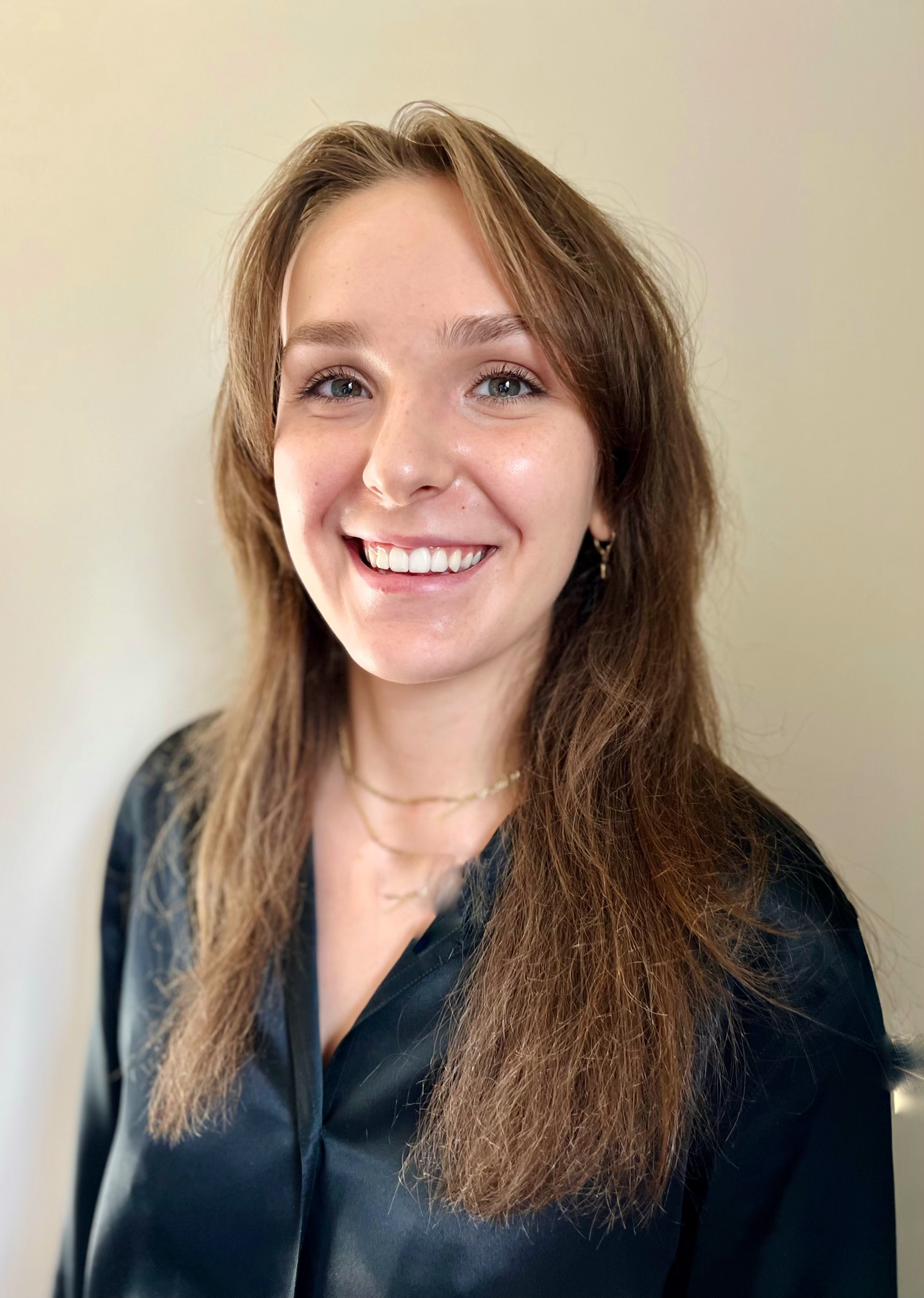
BIO
Isabella is a first-generation student from Fort Myers, Florida, in her second year at Florida State University, majoring in Linguistics and Languages. Isabella is bilingual and has a passion for learning languages. She hopes to use her passion for language to facilitate connections with new people and cultures.
Ambiguous relative clause attachment and language mode in bilingual Spanish-English speakers
Authors: Isabella DiGiorgio, James AndersonStudent Major: Linguistics & Languages
Mentor: James Anderson
Mentor's Department: Department of Modern Languages Mentor's College: College of Arts & Sciences Co-Presenters: Jennifer Teixeira-Olivera
Abstract
The purpose of this project is to examine the relationship between ambiguous relative clause attachment and language mode in bilingual Spanish-English speakers. Many single language studies have indicated that particular languages, like English (Cuetos & Don C. , 1988), Spanish (Carreiras & Clifton, 1993), and Greek (Papadopoulou & Clahsen, 2003), the users of these languages are more likely to use specific attachment preferences. For example, English is typically low attachment, while Spanish and Greek is usually high attachment. This is can be typically attributed in single language studies to the variance in cross-linguality (Grillo & Costa, 2014). However, more recent Bilingual studies have introduced new uninvestigated elements, like code- switching, that suggest that there are more factors at play (Couto & Gullberg, M., 2019). Overall, this project aims to examine these factors as it relates to the interpretation of the ambiguous relative clause, by
Spanish-English Bilinguals.
Keywords: linguistics language bilingualism psychology
23rd annual Undergraduate Research Symposium, April 6, 2023
Amber Collinsworth Poster Session 1: 11:00 am - 12:00 pm/ Poster #251

BIO
I'm an undergrad in Statistics with an interest in machine learning, prediction, and Bayesian statistics. My current work involves refining research steps, programing, and analysis.
Numeric Properties in Type Ia SN Flames
Authors: Amber Collinsworth, Tomasz PlewaStudent Major: Statistics
Mentor: Tomasz Plewa
Mentor's Department: Department of Scientific Computing Mentor's College: College of Arts and Science Co-Presenters:
Abstract
Type Ia supernovae form at the end of the life cycle of low mass stars. This occurs when they satisfy certain criteria such as their mass during late stages of their evolution. Attempts to model an SN Ia have been made for decades. However, these astronomical events are incredible in size, and have complex physical systems that are challenging to study even for the larges computers. To overcome this limiting roadblock, we are using MESA (Modules for Experiments in Stellar Astrophysics), which models a proportion of a stellar mass, rather than an entire star. With it one can predict theoretical properties of stars including the speed of burning fronts, burning rates, and resulting composition. In this project we use MESA's model flame setup and systematically vary the density and composition of stellar fuel to obtain an approximate formula for the laminar flame speed. We will also compare our results with that of previous studies.
Keywords: Supernovae, MESA Code, Analysis
23rd annual Undergraduate Research Symposium, April 6, 2023
Megan McEnery Poster Session 3: 2:45 pm - 3:45 pm/ Poster #338
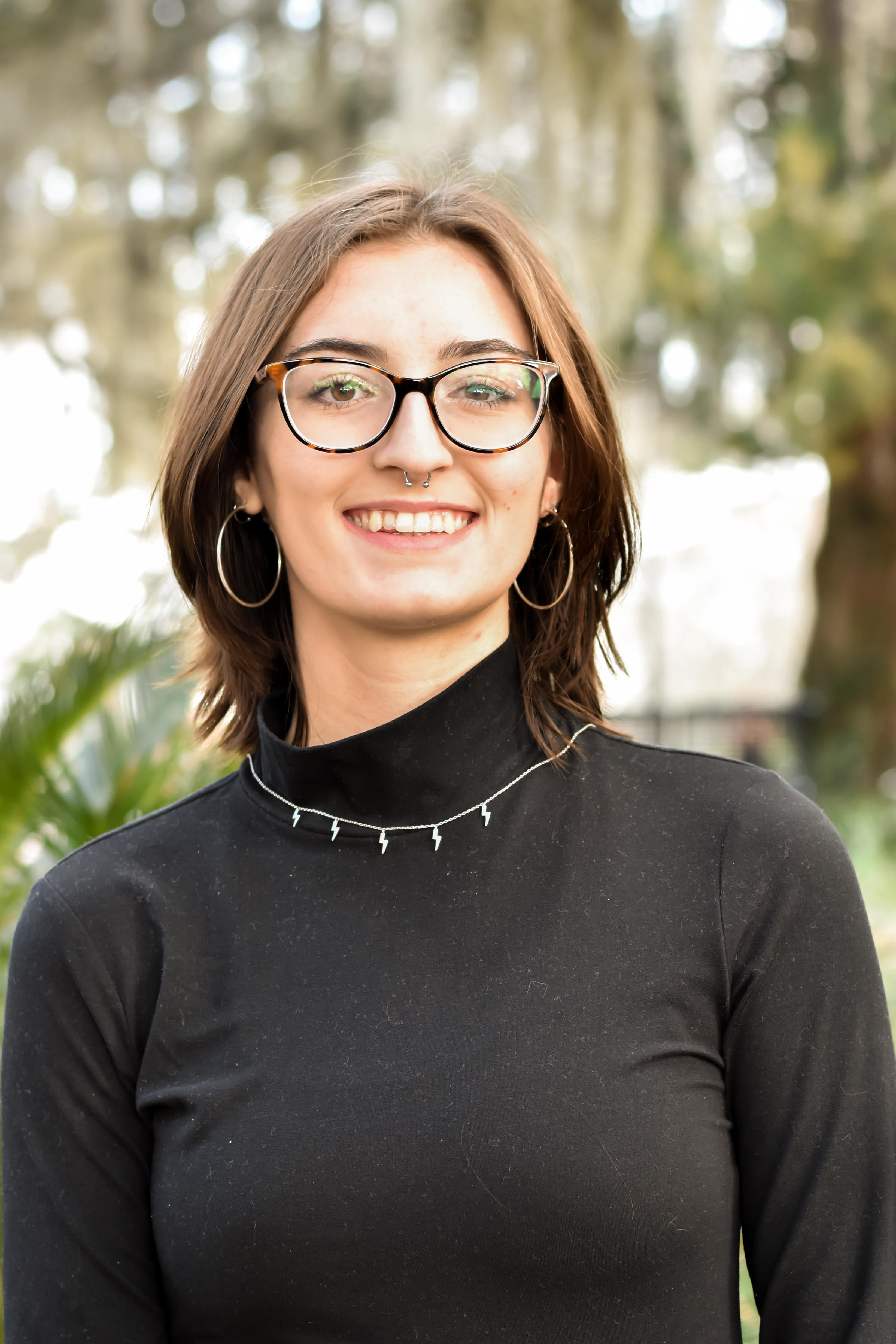
BIO
My name is Megan McEnery, I am a second-year Junior majoring in Political Science and Interdisciplinary Social Science with a minor in International Affairs. I am from Tampa, Florida and a graduate of the International Baccalaureate Program. My research interests include immigration and foreign policy. I enjoy learning about immigration and foreign policy because these topics are becoming increasingly important to our daily lives due to globalization. It is important that everyone has basic knowledge of these topics so they can understand the conversations happening around them by legislators and individuals with power and influence. After graduating from Florida State, I plan to attend law school and then obtain my Doctorate. I plan to specialize in immigration and family law and help individuals obtain their own voice to fight back against an unfair system.
Issues of Fragmentation & Wickedness of DACA Policy
Authors: Megan McEnery, RadhaStudent Major: Political Science, Interdisciplinary Social Science
Mentor: Radha
Mentor's Department: Interdisciplinary Social Science Mentor's College: Modi Co-Presenters:
Abstract
During the Obama administration, DACA (Deferred Action for Childhood Arrivals) was introduced as an Executive Order to provide a temporary solution to allow children who were brought to the US by their parents, relief from worrying about being deported. DACA allows certain individuals who came to the United States as children, and who meet several guidelines, to request consideration of deferred action for a period of two years that can be renewed.
Currently, DACA is being argued within the judicial branch over whether it violates the Administrative Procedures Act (Press, 2022). It will eventually fall upon the Supreme Court to make a decision and depending on their decision DACA could either be protected or rescinded.
DACA is a policy that arose to solve specific market failures; market abuse and negative externalities. The major debates surrounding DACA influence all major stakeholders; politicians, DACA recipients, states, and employers. There are unintended negative consequences that end up affecting undocumented individuals of all identities. Therefore, while DACA is an important policy that would be irresponsible to eliminate entirely, a more permanent policy needs to be created in order to account for uncertainty.
Keywords: DACA, Wickedness, Fragmentation, Intersectionality, Undocumented
23rd annual Undergraduate Research Symposium, April 6, 2023
Cameron Valenti Poster Session 1: 11:00 am - 12:00 pm/ Poster #324

BIO
I am a second-year Economics major, Mathematics minor. My research interests include industrial organization, urban economics, and environmental economics. After graduation, I plan on attending graduate school so that I can become an Economist.
St. Andrews and St. Joseph Bay Estuary Program Economic Valuation
Authors: Cameron Valenti , Dr. Georgianna StrodeStudent Major: Economics
Mentor: Dr. Georgianna Strode
Mentor's Department: Florida Resources and Environmental Analysis Center (FREAC) Mentor's College: Institute of Science and Public Affairs (ISPA) Co-Presenters: Lydia Arrieta
Abstract
The St. Andrew Bay Watershed covers 1,156 miles in North Florida’s central panhandle. The watershed encapsulates both St. Andrew and St. Joseph Bay. Florida State University’s (FSU) Center for Economic Forecasting (CEFA) in conjunction with FSU’s Florida Resources and Environmental Analysis Center (FREAC) are studying the economic value and impact of the St. Andrews and St. Joseph Bay Estuary on the surrounding counties. The organizations are using Geographical Information Systems (GIS), coding languages, and econometric methods to evaluate the economic impact/benefits of the estuary. Data from the Florida Department of Revenue (FDOR), Florida Division of Emergency Management (FDEM), and NETs is being utilized. The results thus far are tentative, but will include direct business sales, property values, and annual carbon sequestration within the estuary region.
Keywords: economics, environmental valuation, GIS
23rd annual Undergraduate Research Symposium, April 6, 2023
Joelyz Wolcott Poster Session 2: 1:30 pm - 2:30 pm/ Poster #189

BIO
Joelyz Wolcott is a third year behavioral neuroscience major completing her honors in the major project in the Wang lab. Her research examines the effects of lipopolysaccharide (LPS) treatment on brain neuroinflammation and social and anxiety-like behaviors in the prairie vole. In addition to her research, she is the vice president of Connecting Girls to STEM and events coordinator for the Neuroscience Undergraduate Student Association. After graduation, she plans to continue pursuing neuroscience research in a graduate school program.
Lipopolysaccharide treatment induces brain neuroinflammation and alters social and anxiety-like behaviors in the male prairie vole
Authors: Joelyz Wolcott, Zuoxin WangStudent Major: Behavioral Neuroscience
Mentor: Zuoxin Wang
Mentor's Department: Department of Psychology, Program in Neuroscience Mentor's College: Arts and Sciences Co-Presenters:
Abstract
The prairie vole (Microtus ochrogaster) is a socially monogamous rodent species that provides an excellent opportunity to study the impact of social environments on the brain and behavior. In a recent study from the Wang lab, chronic social isolation increased anxiety-like behaviors, decreased social affiliative behaviors, and elevated neuroinflammation in selected brain regions in adult male prairie voles. Because chronic neuroinflammation has been implicated in anxiety-like and social behaviors, we predict that neuroinflammatory changes in selected brain regions may play a role in mediating altered behaviors associated with social isolation. In the present study, we treated male prairie voles with or without lipopolysaccharide (LPS) to alter their immune system, and then measured their anxiety-like behaviors using the elevated plus maze (EPM) and affiliative behaviors using the social affiliation (SA) tests. Our behavioral data show that, compared to the control voles, LPS-treated voles spent less time in the open arms of the EPM, more time sitting in the corner and less time displaying social interaction with the conspecific during the SA test. These data suggest that LPS treatment increased anxiety-like behaviors and impaired social affiliation. We also immunoreactively stained the vole brain sections with Iba-1, a protein marker of microglia activation, to measure the effects of LPS on neuroinflammation in selected brain regions. We predict that LPS treatment induces neuroinflammation in certain brain regions, which, in turn, can alter the anxiety-like and social affiliative behaviors. (Support by NIMH108527-R01 and NIMH-125408-R01)
Keywords: neuroinflammation, prairie vole, anxiety-like behavior, social behavior, neuroscience


